Process
Naoshima
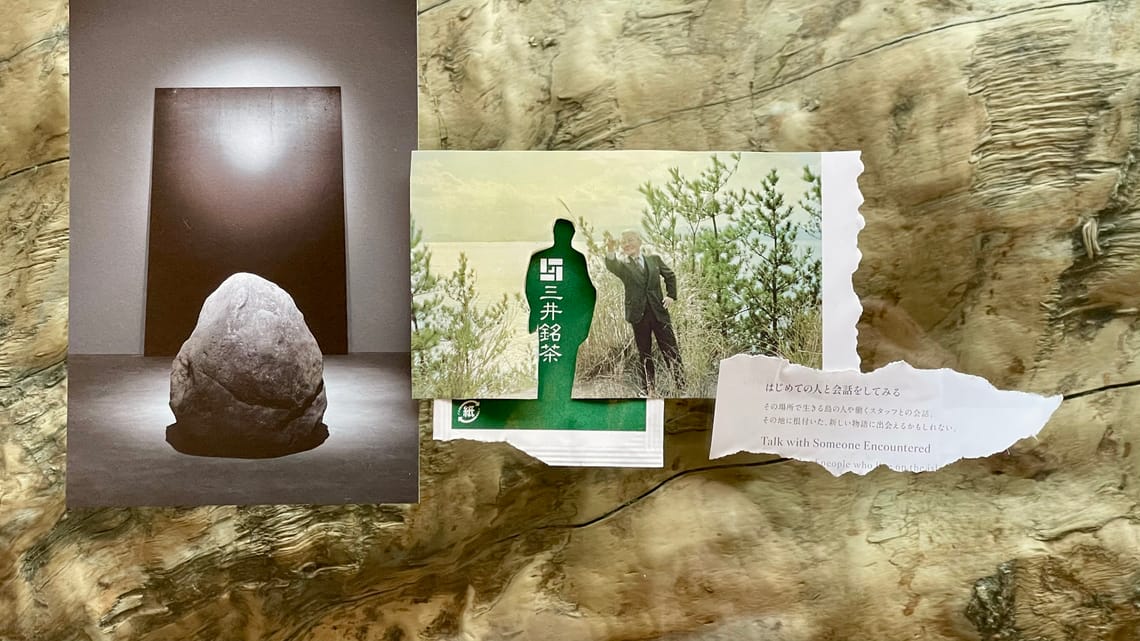
Momentary collage in the Benesse House Park Lounge on Naoshima island. Postcard of Relatum-Silence by Lee Ufan, green tea wrapper, Naoshima guide fragments, Hiroshi Sugimoto table (glass over Japanese horse chestnut tree).
Process
Tokyo
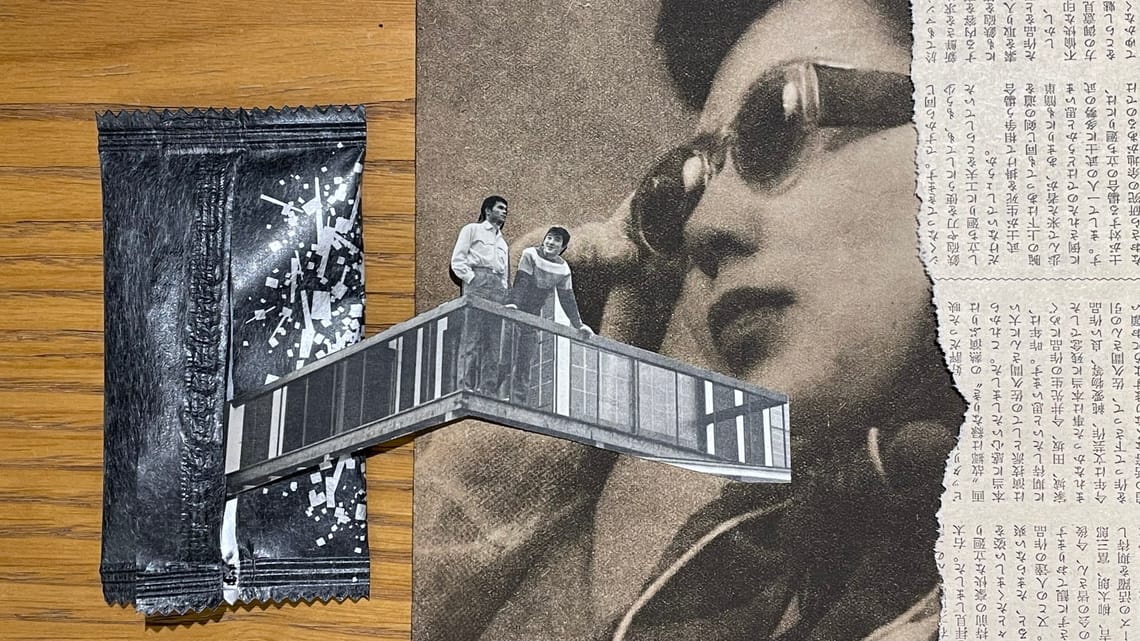
Momentary collage in a tea room in Tokyo. Rice cracker wrapper, vintage magazines, wood table. Made to the sounds of James's latest free mix The Red Curtain, an ode to David Lynch and a shadowed slinky space where I do my best thinking.
Process
A Time of Babble
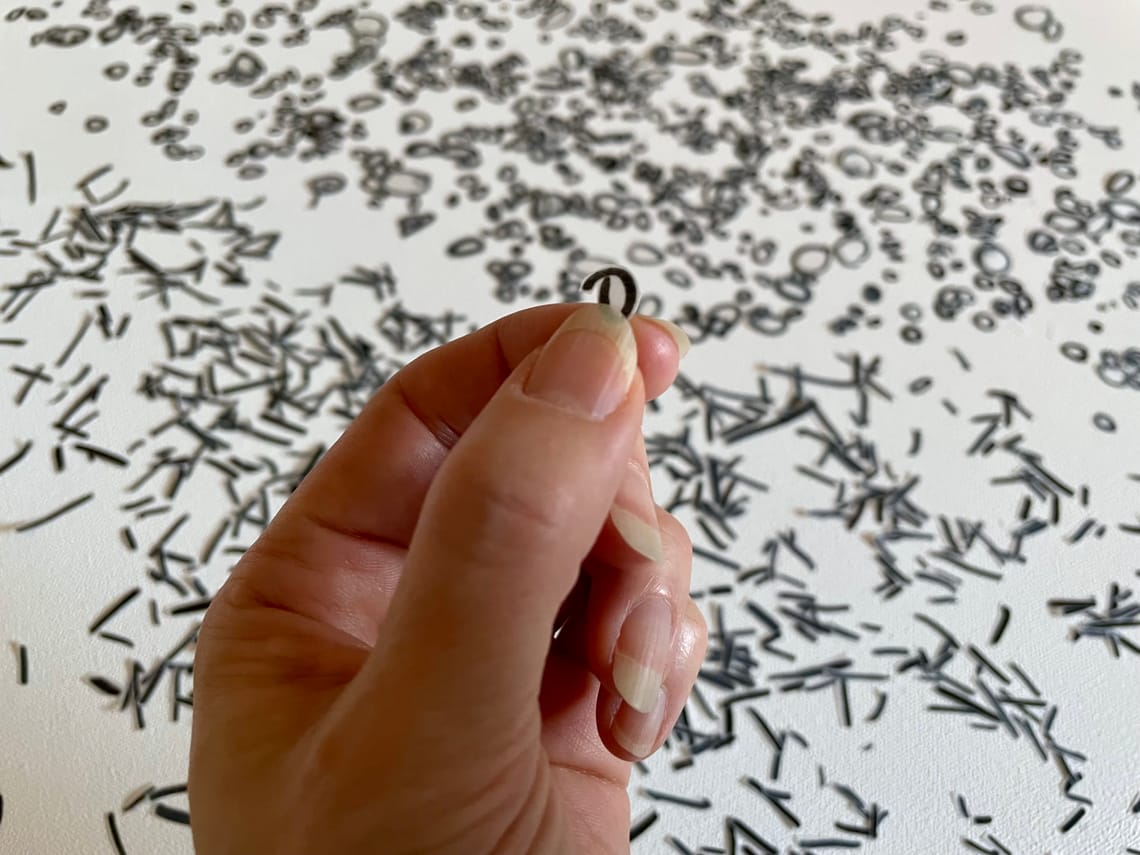
"In his book about the future (in this case, now our past), Stanislaw Lem said that from the end of the 1980s, it was shown to be a technical necessity to give the machines periods of rest during which, free from 'programming instructions,' they could fall to 'babbling' and 'random shuffling,' and, thanks to this erratic activity, regenerate their capacity... I asked myself if it might be the case that, in the creative field, we had found ourselves in a period of repose born out of technical necessity, a period from which we would all emerge more than revived. So why so much ominous chatter? Was it so infuriating to live in a time of 'babble'? Perhaps we were in a moment in which we were recovering speech." - The Illogic of Kassel by Enrique Vila-Matas
Inspiration
Electric Shadows

I dreamt that James and I were in a sinister world where people were throwing homunculi at me—little men the size of spiders. If I chanted, "This is not real. This is not real..." and focused on mundane details like a bureau of drawers, I could exit out of the Video Place. But it took over screens and re-hypnotized James and was pulling me in again, so I dragged us outdoors. When we got outside, we found hundreds of people in a daze, chanting to themselves, "This is not real. This is not real..." Because we were all chanting at the same time, it made our environment so surreal that none of us could snap out of it.
The Video Place is now a disturbing and provocative thing in my head. I wonder if it's because I'm reading Valis by Philip K. Dick (thank you Marty). I'm enjoying it, though. He's funny and lucid about what may or may not be a psychosis, and his theories about God seem no less wild than Leibniz's monads or Lacan's knot. The worlds we create for ourselves is a theme in books I've enjoyed lately, including The Illogic of Kassel by Enrique Vila-Matas and Piranesi by Susanna Clarke—art, mythology, and labyrinths are all on my mind.
Thanks to an Asian Cultural Council Fellowship, I'm spending the Spring of 2025 in Taiwan and Japan to do independent research on sacred architecture and the traditional Asian arts. I'm excited to marinate in temples, art, night markets, and the unknown. To prepare, I've been brushing up on my Chinese, which is full of holes.
The secret to memorizing something, according to experts, is to associate it with imagery that will stick in the mind. The weirder the better. Chinese is chock full of symbols, so I'm trying to follow them, and now I associate a lot of Chinese with horror. The word for meat (肉 ròu) looks like two people (人) being hanged. Steamed (蒸 zhēng) looks like a child (子) wearing a grass (艹) hat being boiled in water (水) over fire (灬).
Mom and Dad find it amusing that I want to spend more time in Taiwan. They prefer America and the convenience of a miracle mile. But we all enjoy musing on the wordplay baked into the Chinese language. Fish (鱼 yú) sounds like surplus (余 yú), so we eat fish during the New Year to summon abundance vibes. Chinese doesn't get bogged down in words like a, am, and is, so it's full of pithy four-character idioms like 心满意足 xīn mǎn yì zú = heart is full, feeling is satisfied (good to say after a meal with friends) or 画蛇添足 (huà shé tiān zú) = to draw legs on a snake (one of my favorites, which means you're overdoing it).
I also love Chinese words for technologies. Telephone (电话 diàn huà) means “electric speech”. Television (电视 diàn shì) is “electric vision”. Computers (电脑 diàn nǎo) are “electric brains”. Movies (电影 diàn yǐng) are “electric shadows,” and electric shadows make me think of Plato's Cave and the Video Place.
Inspiration
Preposterous But Strangely Compelling
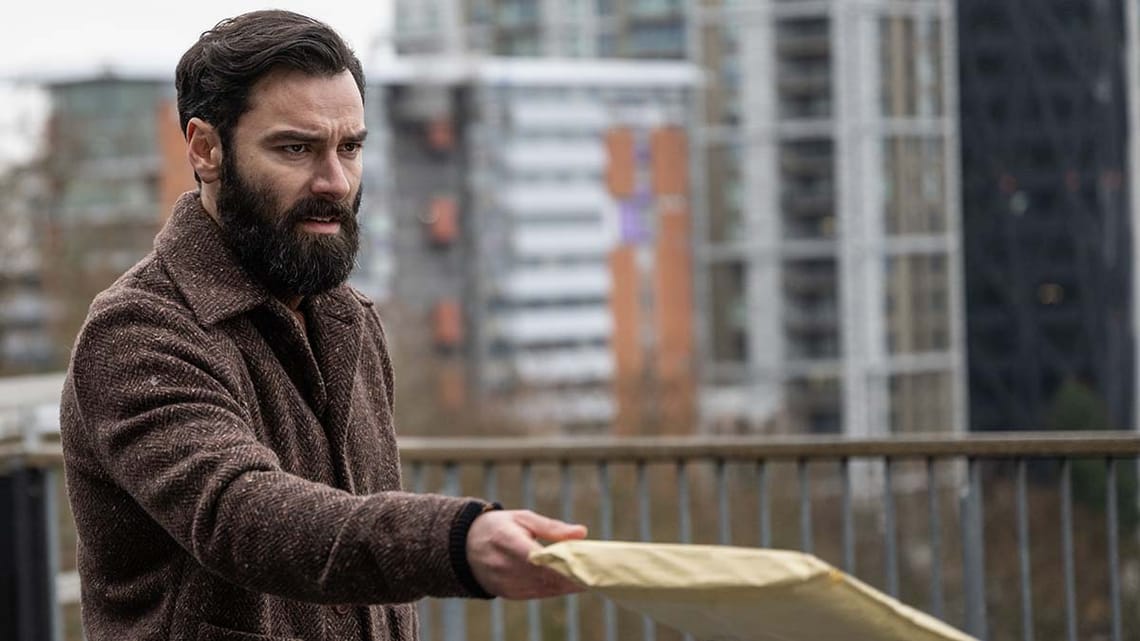
I watched a British thriller called The Suspect based on a headline describing it as “preposterous but strangely compelling.” It was, and I enjoyed Aidan Turner sustaining intense confusion on his face. The Lazarus Project and The Capture are much better British thrillers, but I started thinking “preposterous but strangely compelling” is a very good category. It may be all I want to see and make in this era.
The other day I searched online for Goya's painting Saturn Devouring His Son. DuckDuckGo returned this:
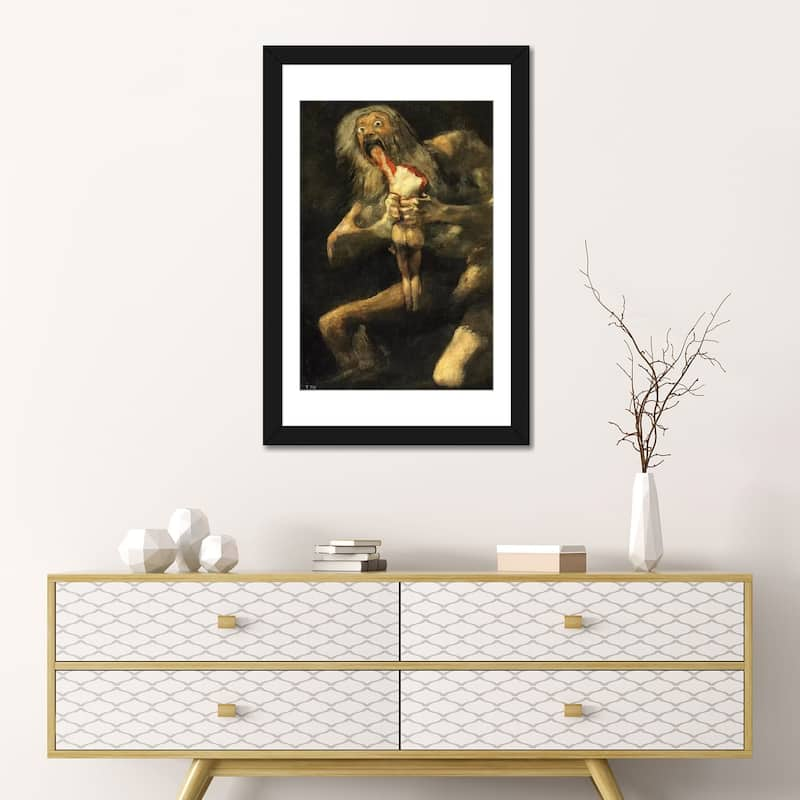
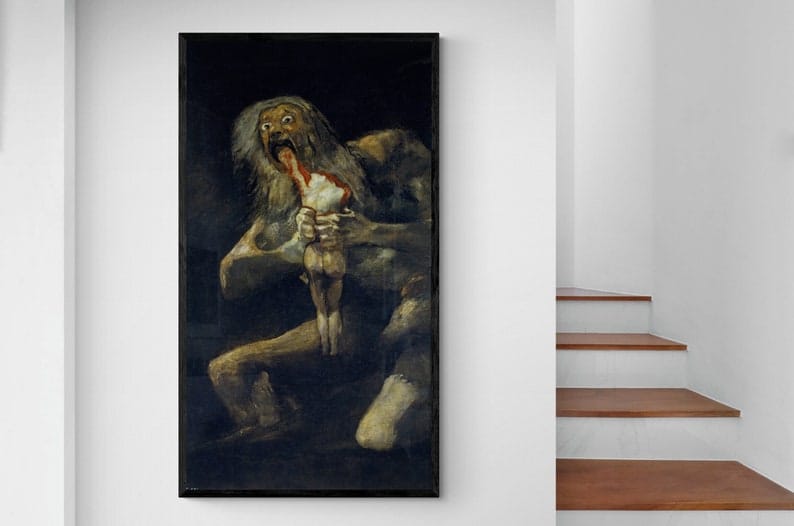
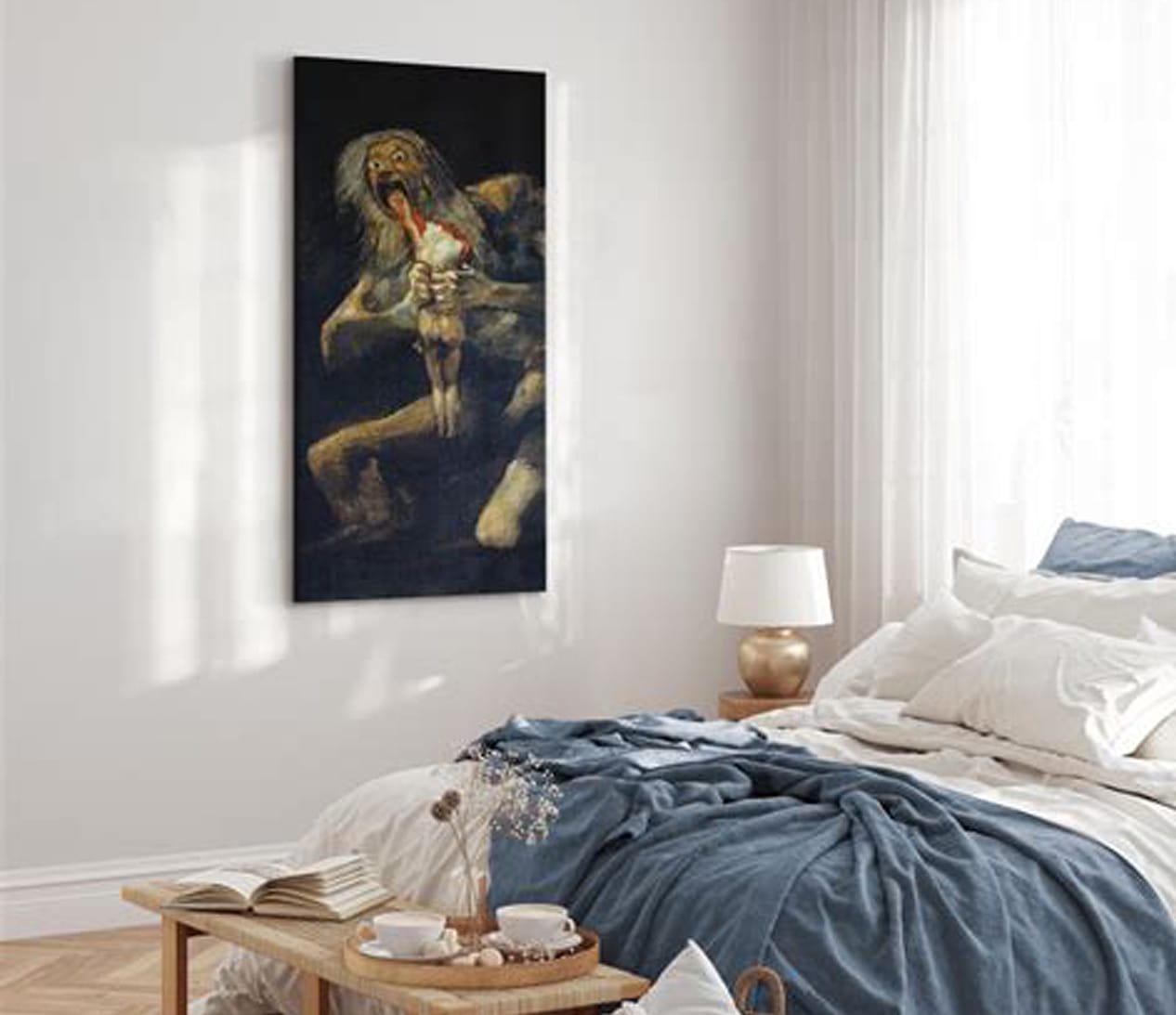
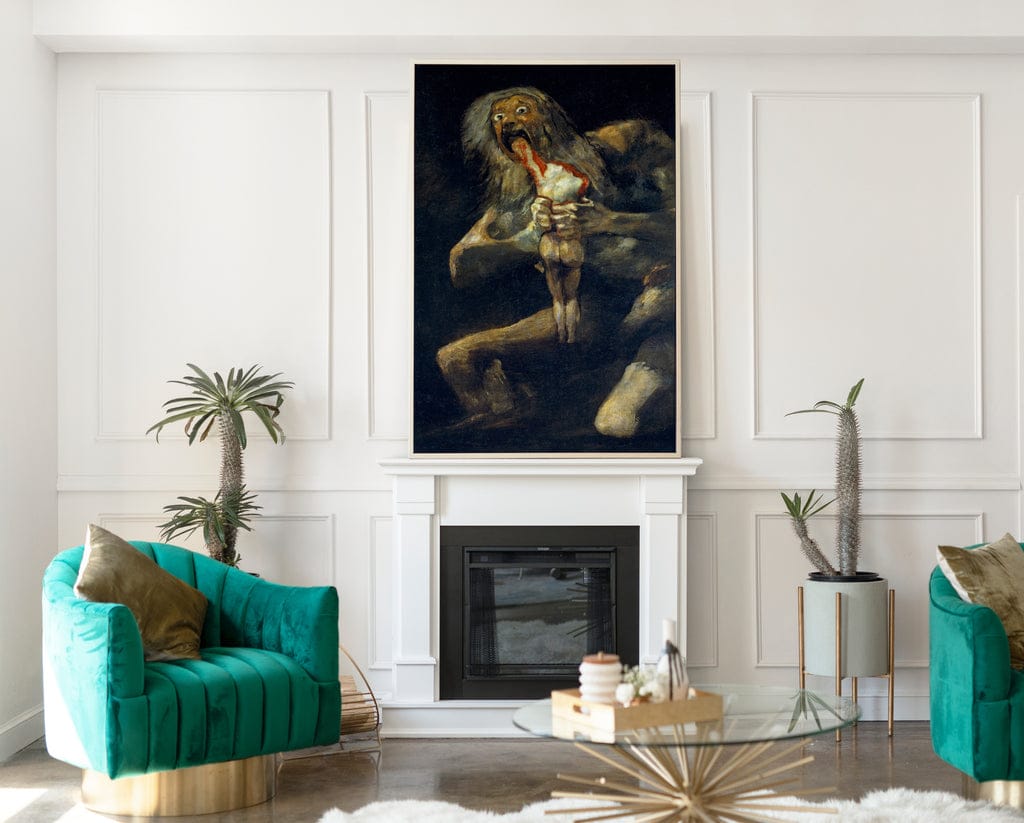
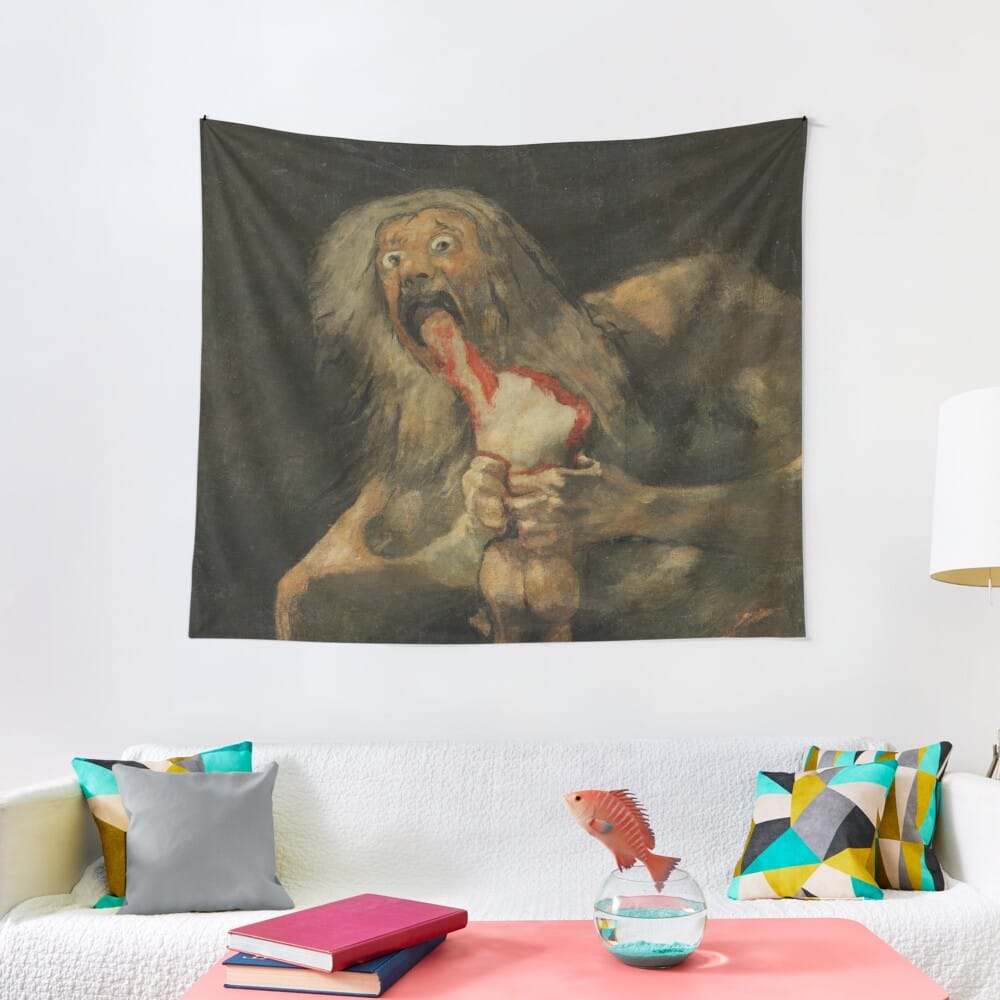
What a bounty of the Preposterous But Strangely Compelling! It's been a real pleasure looking at them, imagining all of these lives conjured from art print sellers' automated image generators. I had to scroll through these images before finding the original painting, though, and AI will now produce an infinite library of slop. It's not hard to imagine an internet filled with so much junk that it's only usable by depending on AI to search it for you.
I taped up Saturn Devouring His Son on the wall in my studio so I could think about it more, but it lives among many images so the impact is unmatched. Now I am enticed to print it big for our living room.
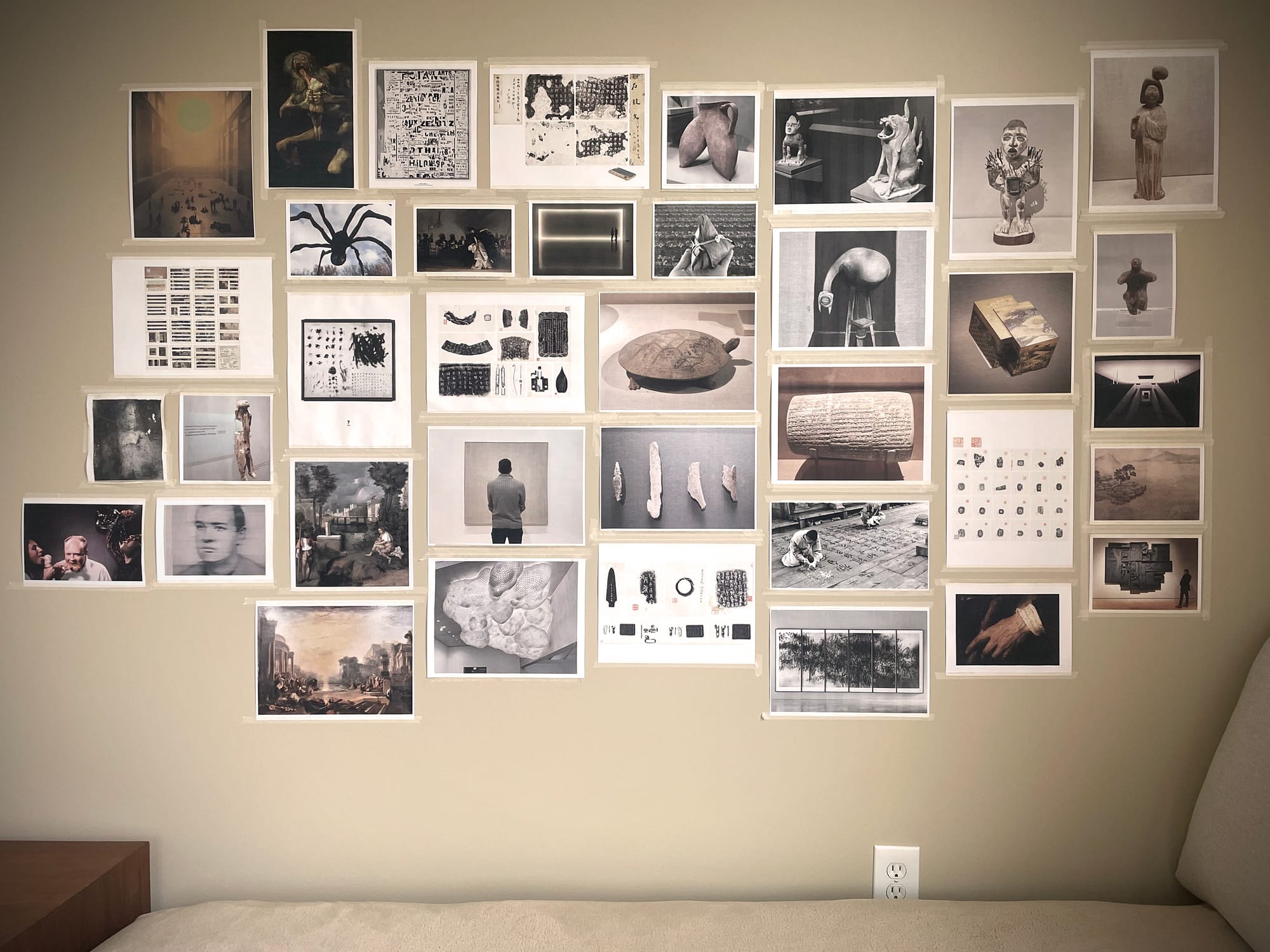
Inspiration
Ugolino
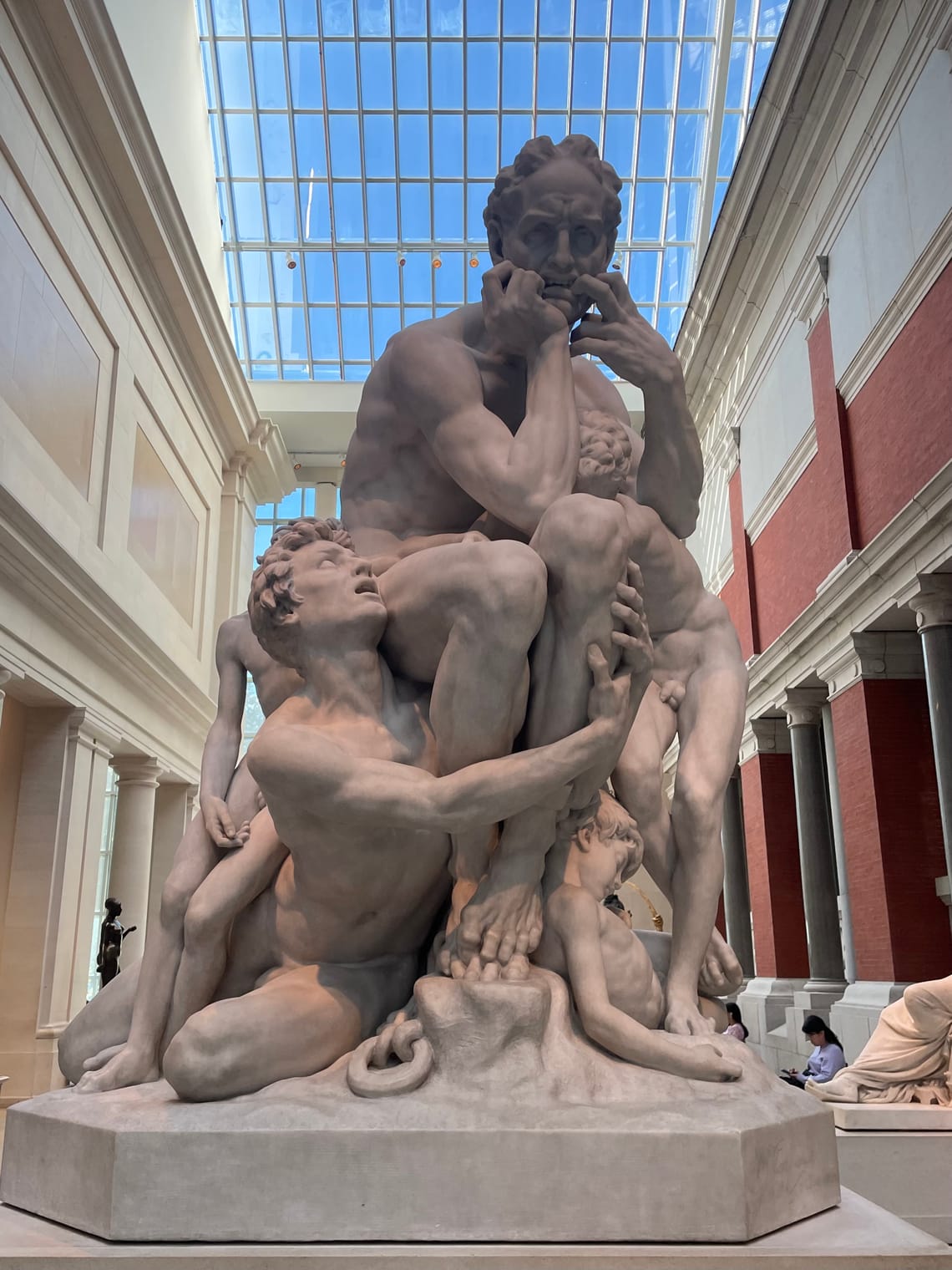
When I feel stress, I think of Ugolino who was locked in a tower with his sons and grandsons, forced to choose between starvation and cannibalism, and then I remember things aren’t so bad.
Process
Deconstruction
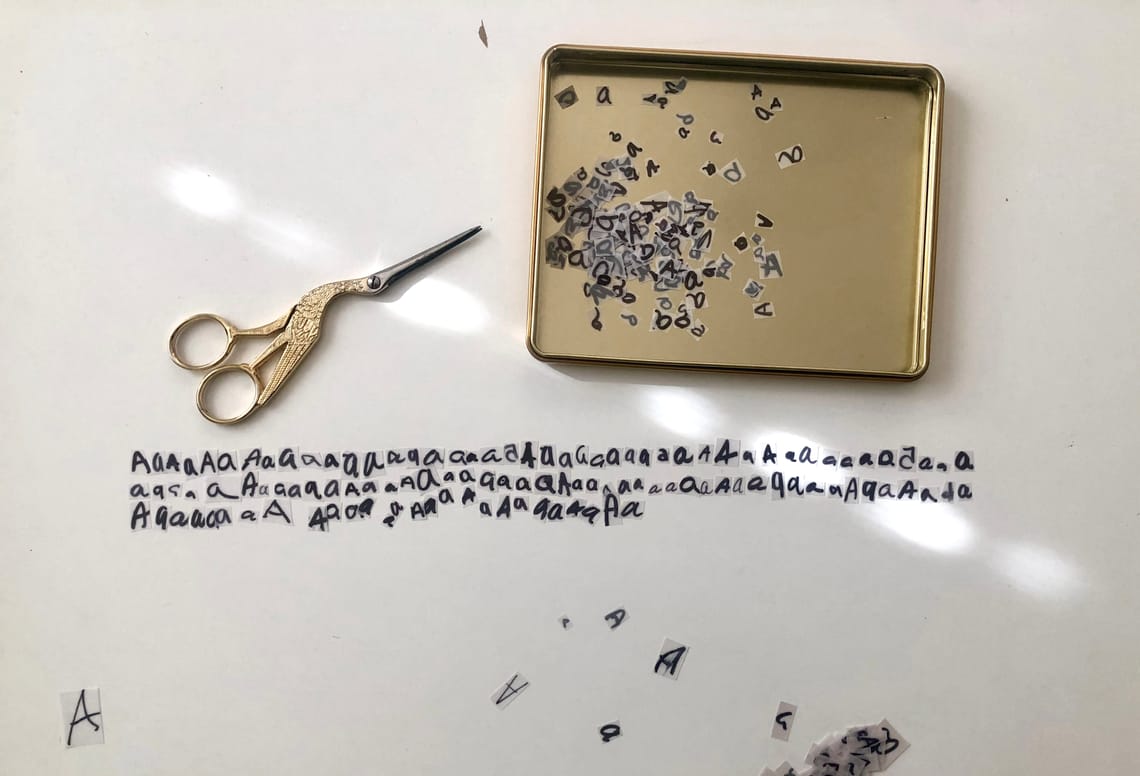



If the condo is on fire, I would grab the pouch of handwritten notes: James’s atomic specks, Mom’s balanced strokes, Dad’s whipping cursive. Their souls feel implanted in these lines, whether it's Agong’s thoughts on world religions or Mom’s directions to Ann Arbor. As penmanship gets displaced with digital tools, handwriting has become its most intriguingly expressive. No more universal Spencerian decorum; it's a free-for-all of personality, and I'm drawn to the honesty of chicken scratches. That’s why I made the Glyph series: this alphabet that connects us with people across nearly 4,000 years is in a most soulful phase.
Inspiration
Kraftwerk
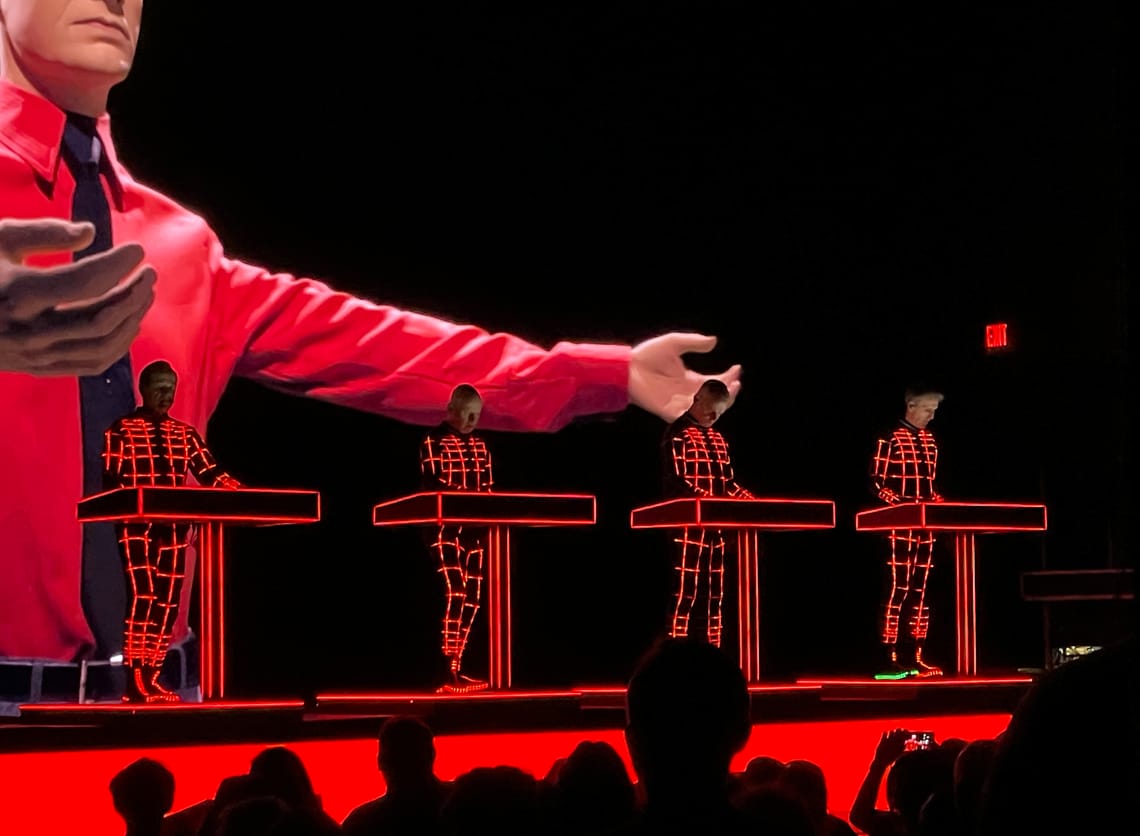
Kraftwerk! Still rocking the Tron suits. Good motivation to stay fit. Ralf Hütter and my mom are the same age. I started imagining Mom up there and that pleased me.
Inspiration
Out of this Anarchy and Chaos
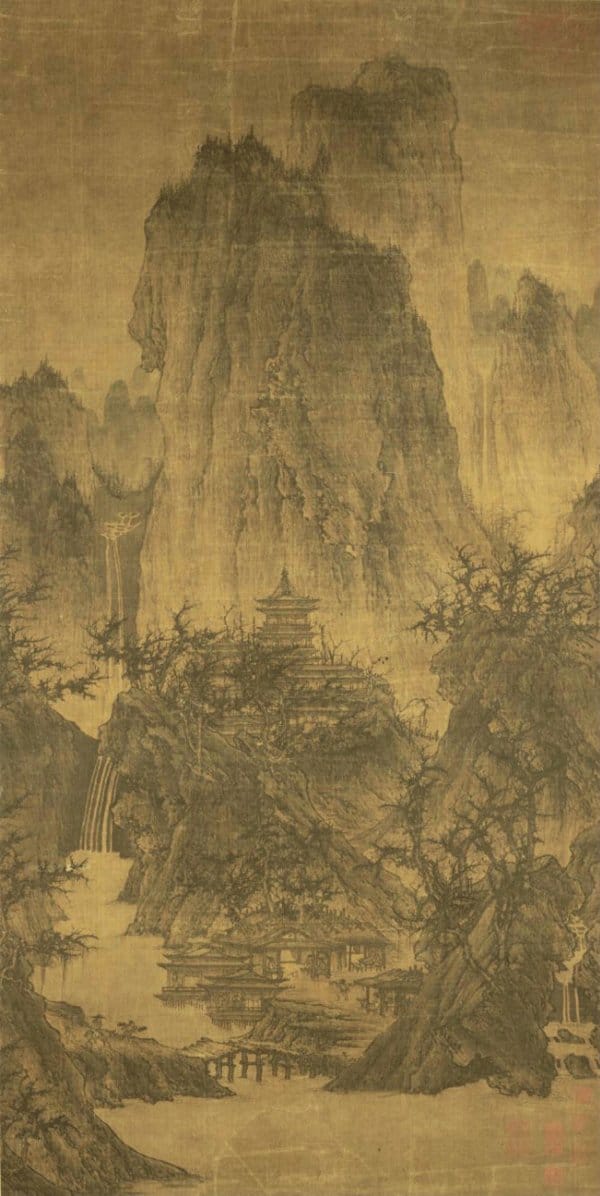
“In the early 10th century, China was torn apart by endless civil war. Yet it was out of this anarchy and chaos that the Chinese tradition of landscape painting first blossomed as the great subject of art…
“Dominating the scroll are mountains, symbols of the Song dynasty. The biggest, most imposing peak is the Emperor, the lesser peaks are his ministers. Li Cheng’s message is that this is the protecting force beneath which China can recover its harmony and rebuild its civilization… And the bottom half of the scroll is crowded, not just with people…. This is our world, this is the place we inhabit.
“This is more than mere propaganda. Li Cheng asks profound questions, which go to the heart of our relationship with the world around us. As our eye ascends through the painting, so our whole approach to it also ascends to a higher order of question. Right in the visual centre is the temple itself, and the temple is almost more important than the whole mountain. It is the place of equipoise, the place of peace.”
— Simon Schama, Civilizations (2018) Episode 4: Picturing Paradise
Process
Solar Eclipse
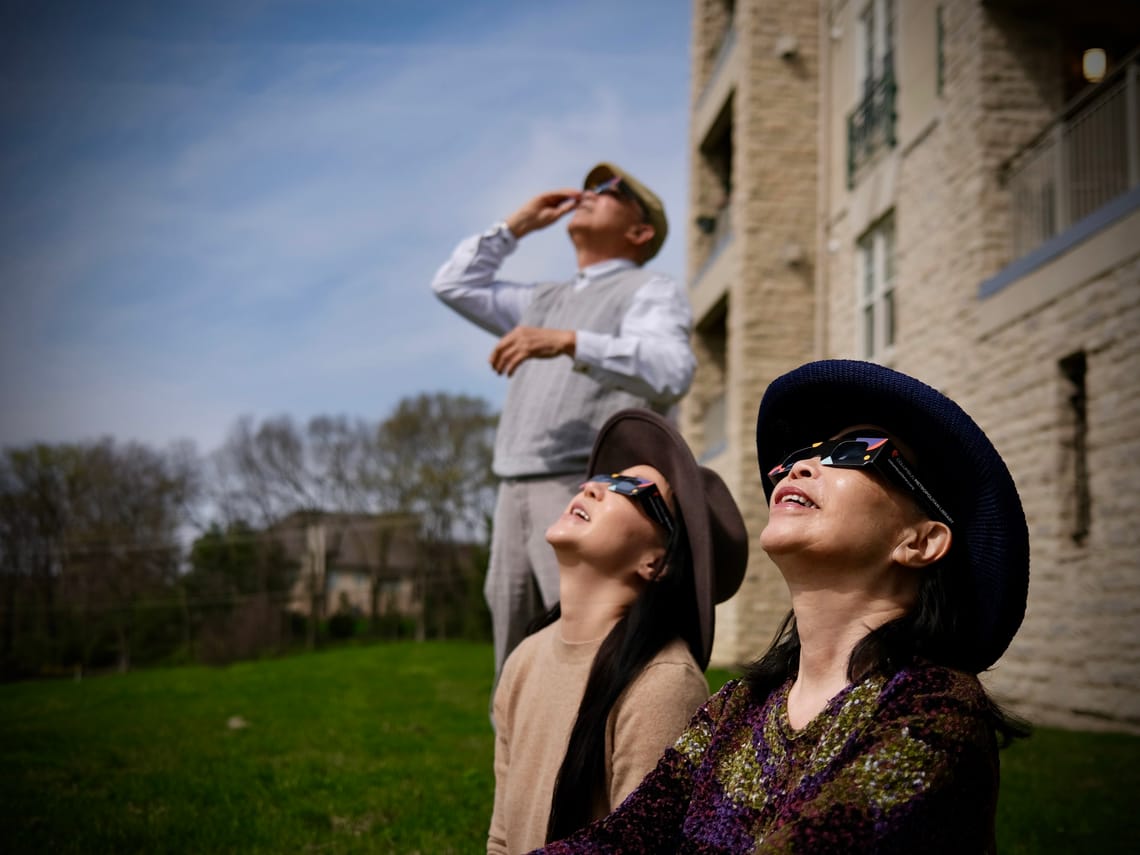
Totality! Celestial alignments above and below. A new phase of life near my adorable parents.
Inspiration
Off the Grid
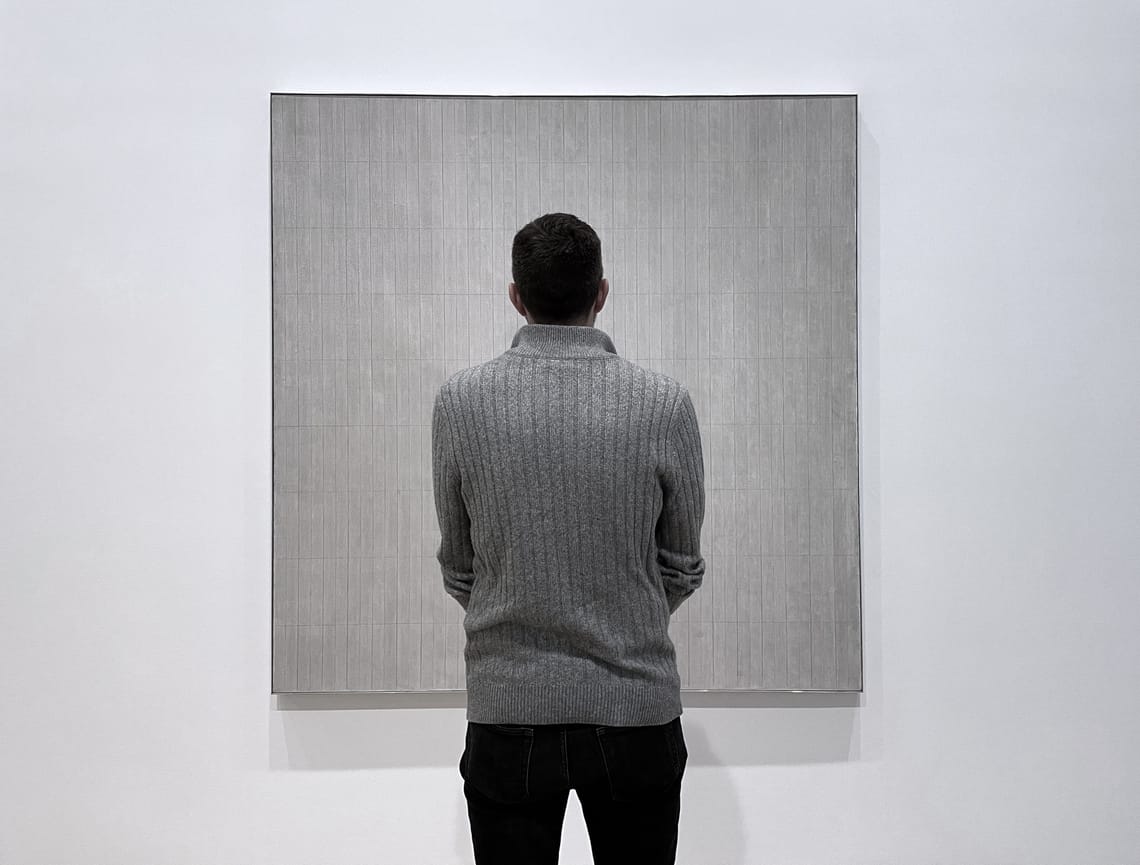
“She lived alone on an isolated mesa in New Mexico with no running water or mains electricity… It’s been said that neighbours who popped round offering cake and cookies were welcomed with the business end of her gun.”
Will Gompertz on Agnes Martin, BBC
Inspiration
The Alphabet
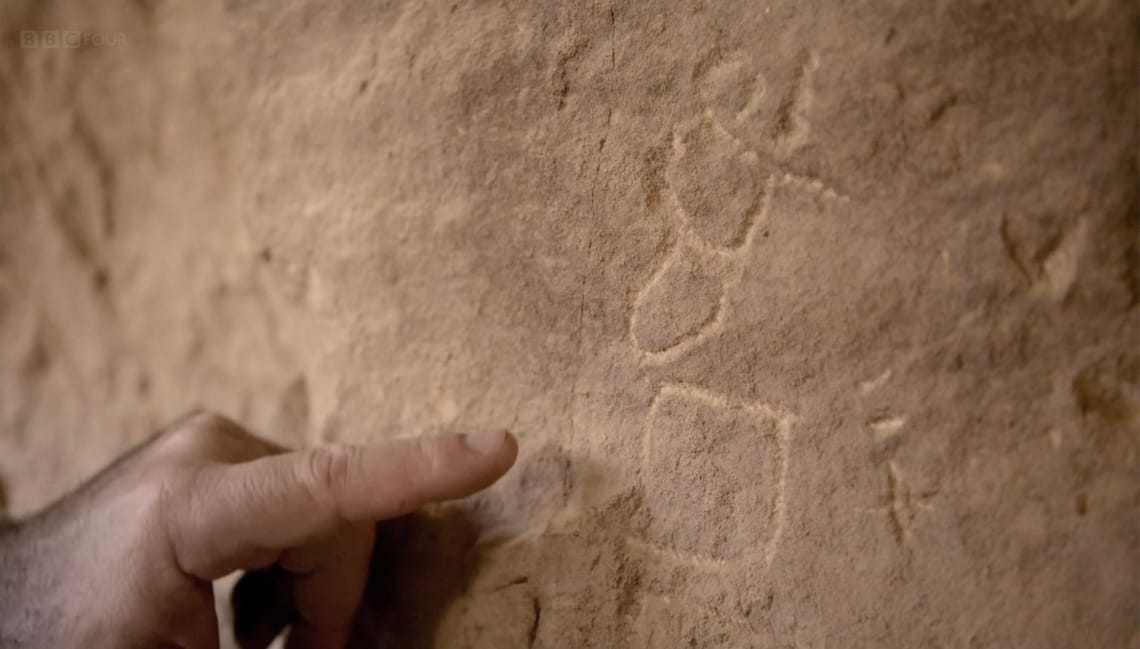
“Almost all the world’s alphabets share the same root—scripts like Hebrew, Armenian, Cyrillic, Tibetan, Devanagari, Gujarati… All the alphabets of Arabia, the Mediterranean, the Middle East go back to one original prototype. It seems that the alphabet, that idea, as simple as it is, was only invented once.”
The Secret History of Writing, BBC4
Inspiration
Future Koan
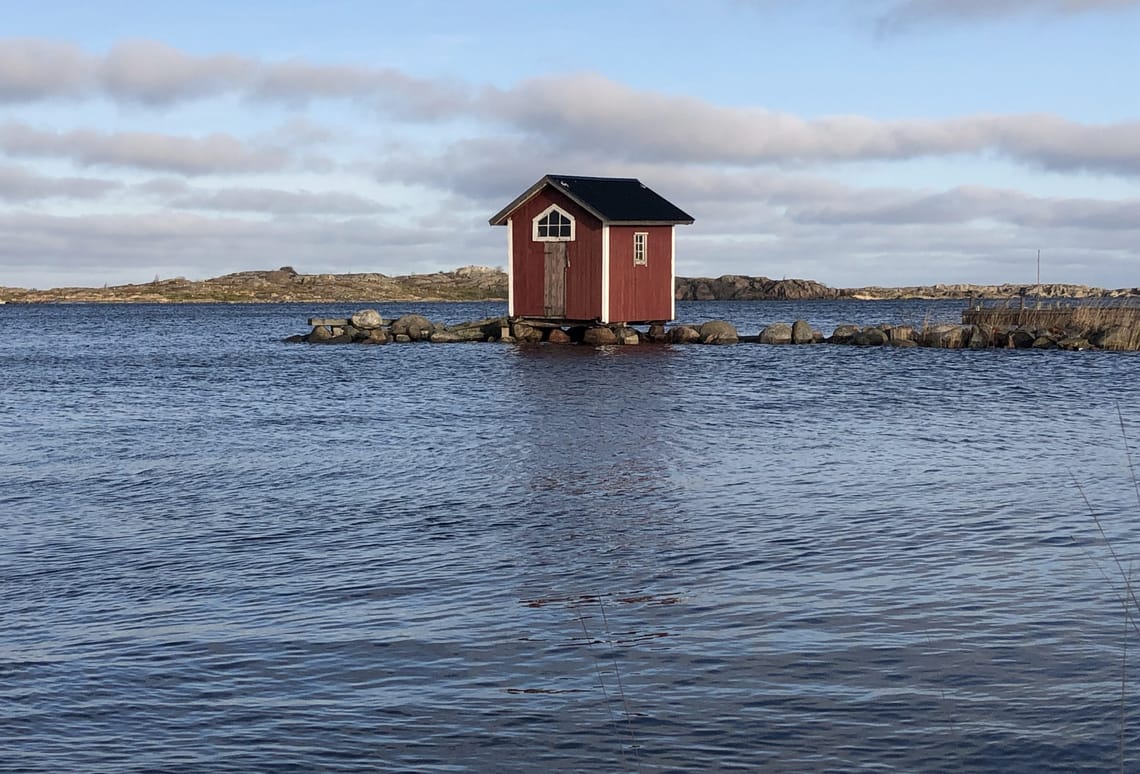
The weather reporter said, “Enjoy tomorrow while it’s still here."
Inspiration
The Sand and Grit of Selfhood
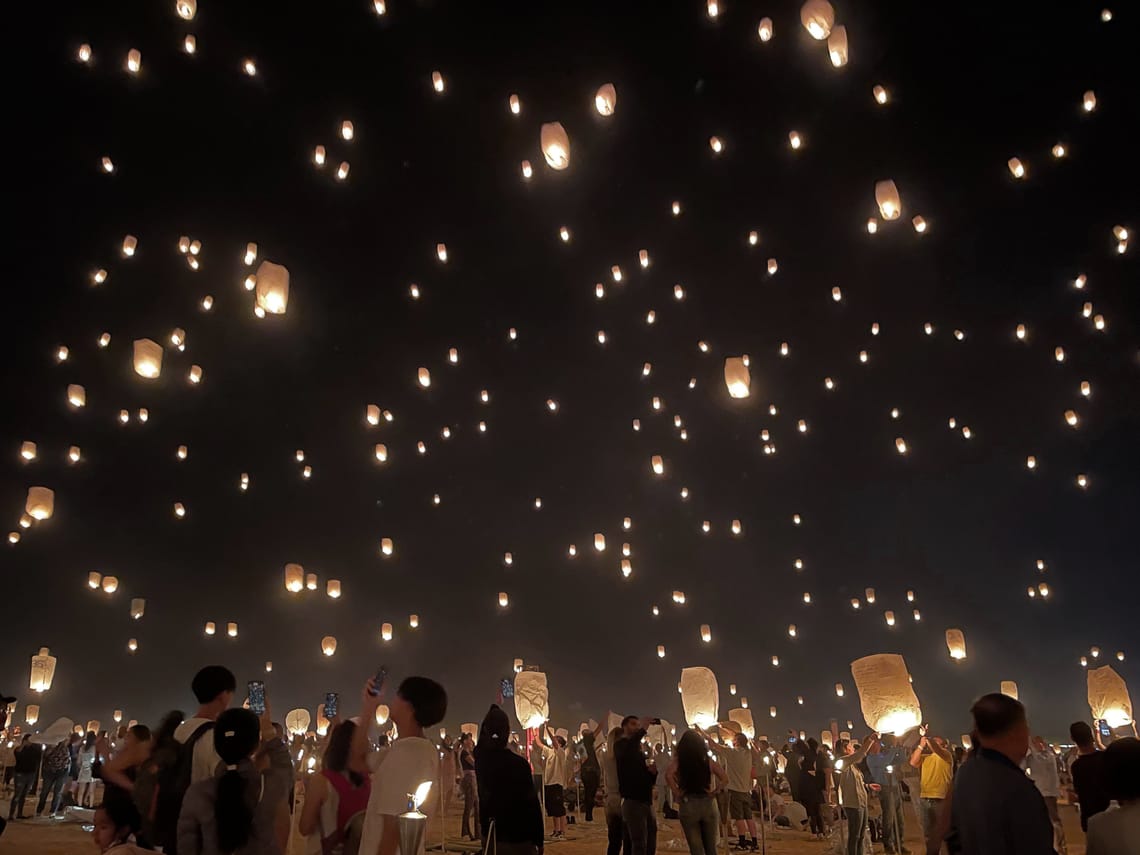
“Religious rapture, moral enthusiasm, ontological wonder, cosmic emotion, are all unifying states of mind, in which the sand and grit of the selfhood incline to disappear, and tenderness to rule.” The Varieties of Religious Experience (1902) by William James
Inspiration
Standard Loneliness Package

“They have gotten it down to a science. How much a human being can take in a given twelve-hour shift. Grief, embarrassment, humiliation, all different, of course, so they calibrate our schedules, mix it up, the timing and the order, and the end result is you leave work every day right about at your exact breaking point.”
Standard Loneliness Package by Charles Yu
Inspiration
Technology
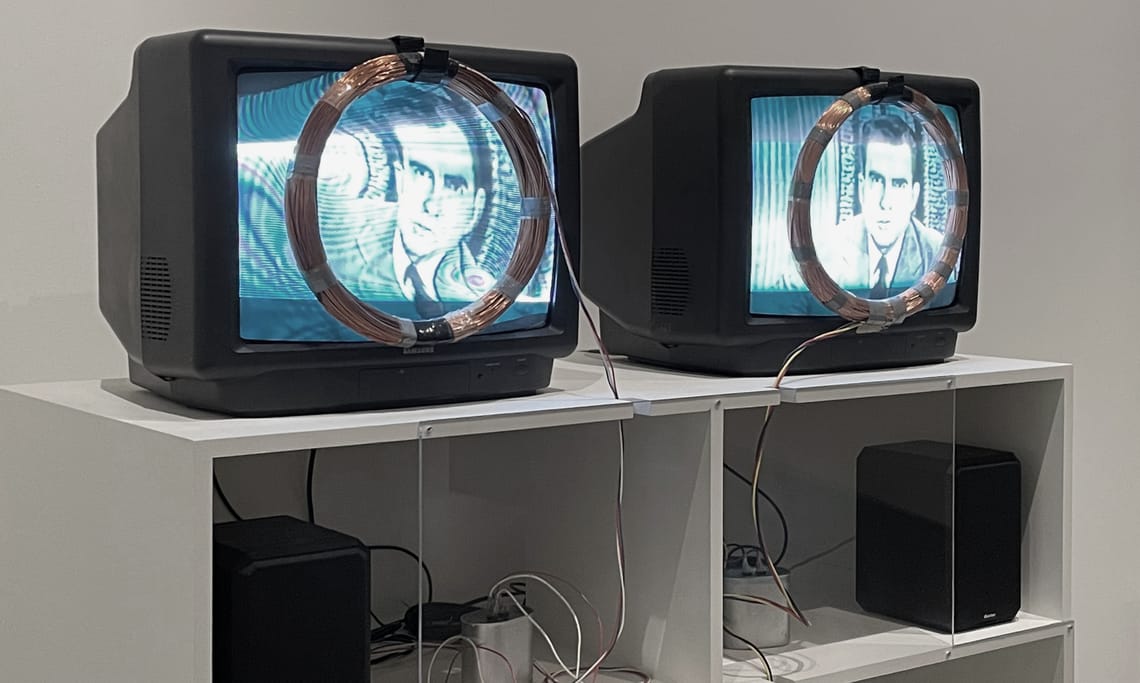

“I use technology in order to hate it properly.”
Nam June Paik
Inspiration
The Valley

“In Ancient China, it was believed that at the eastern and western extremeties of the Earth there were valleys from which the Sun rose and into which it set at either end of its visible transit.”
Dictionary of Symbols (1994) by Jean Chevalier and Alain Gheerbrant
Inspiration
Perspective
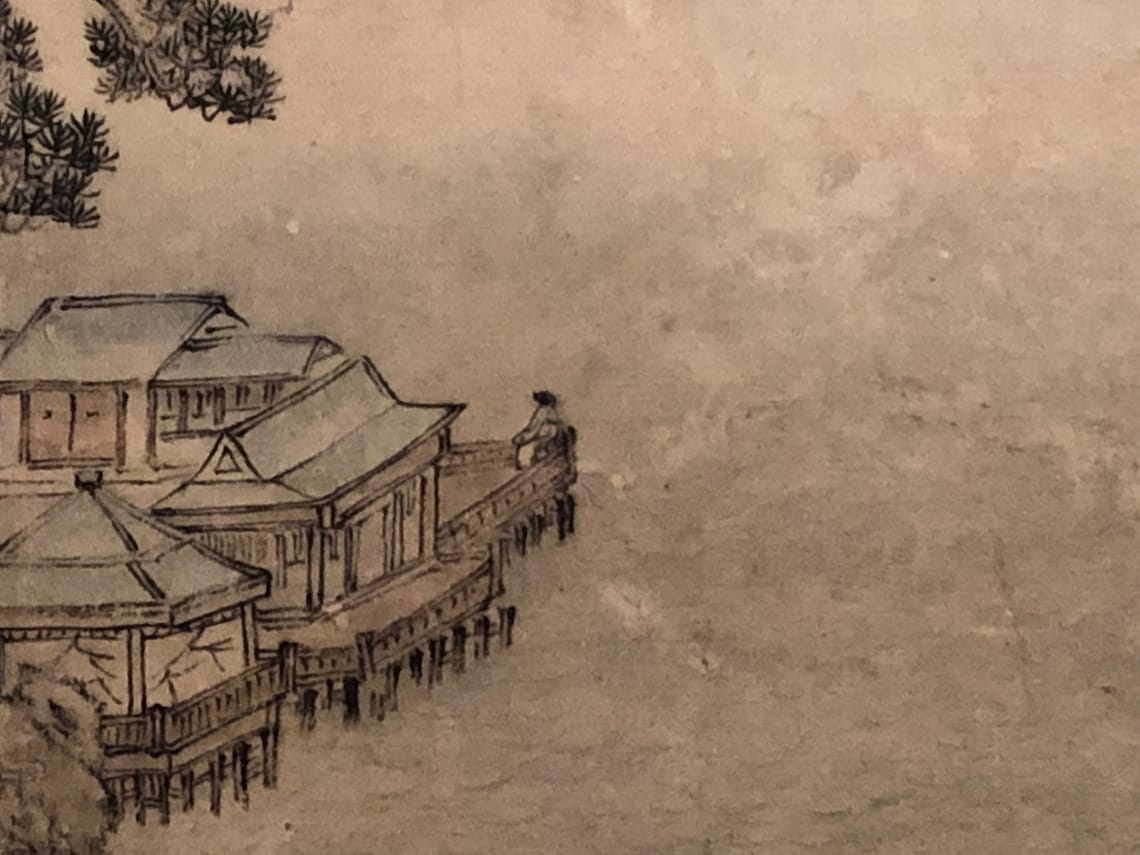




The table lamp in my childhood bedroom saved my mind. It was shaped like a vase and painted with a traditional Chinese landscape featuring tiny, contemplative people amidst massive mountains. When I was a stressed out teenager, I would stare at that lamp and it always knocked me out of my myopic thinking and put my worries in perspective. It still works.
Inspiration
Contempt

“Contempt [directed by Jean-Luc Godard, 1963] is about men and women rendered graceless by their times… It’s one of the few movies of the anxious past half-century that seems equally at home with history and modernity. It might once have looked conventional, but its audacity, we now see, is breathtaking. The world of Contempt is epic in a new way: a world growing in harmony, not opposition, with artifice.”
Man, Godard, and Nature (and Bardot too) by Terrence Rafferty, The New York Times, Mar 9, 2008
Inspiration
The Desert

“One can enter the desert as much to lose as to find oneself… As a psychic landscape the desert often exemplifies protracted periods of alienation, spiritual thirst, redemption, and initation… Or the desert was a transitional space of wandering, exile, temptation and waiting for promise.”
The Book of Symbols by The Archive for Research in Archetypal Symbolism (ARAS)
Inspiration
Hell Money
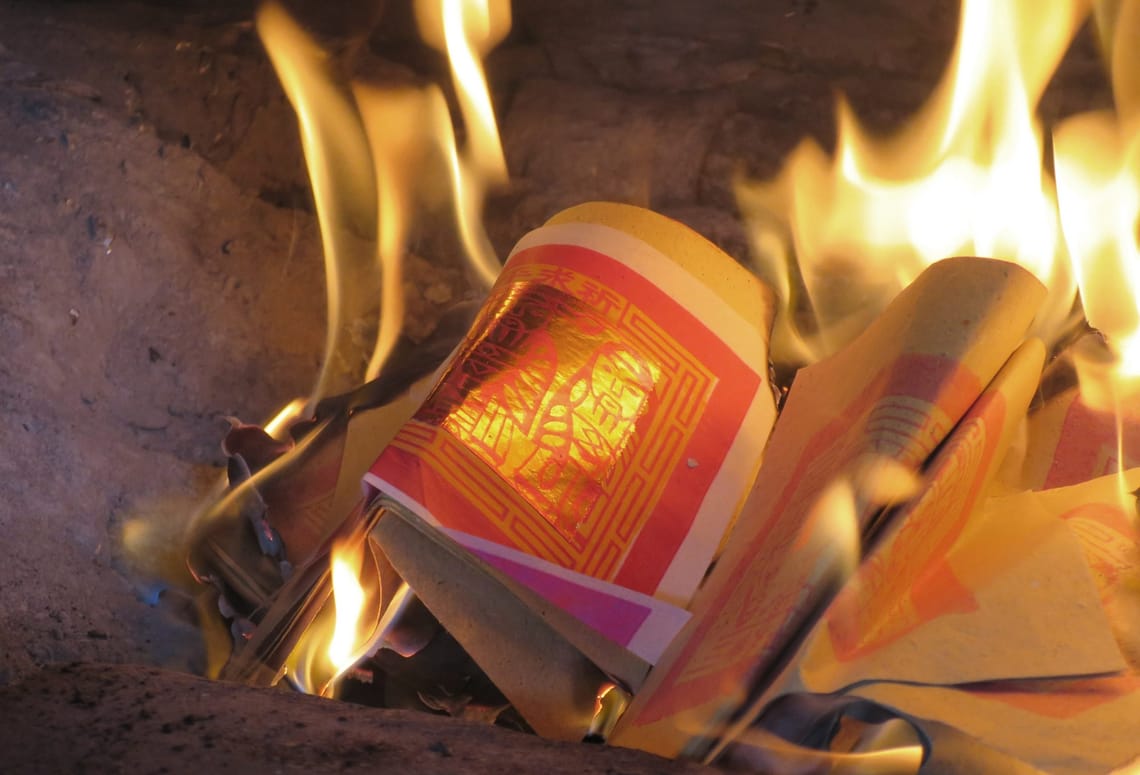
Legend goes that when missionaries traveled to China and failed to convert people, they told them they were going to hell. Those Chinese people thought hell = the afterlife, so they gladly added “hell” to their traditional ghost money, symbolic papers that are burned to send prosperity to ancestors. So that’s how it also came to be called hell money, and now I get to recognize my elders and the dark side at once.

Inspiration
Dream State
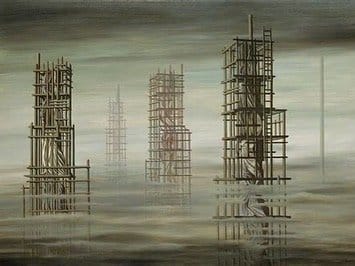
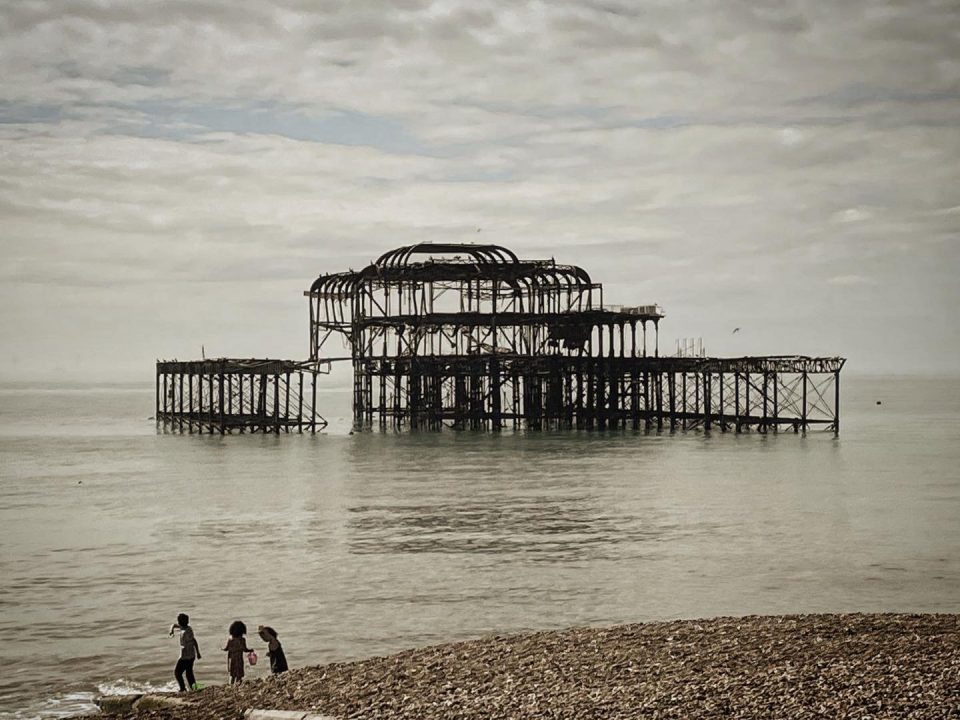
Process
The Nightly News






Behind the scenes of The Nightly News in London in 2022. We called the space the Tarkovsky Box because it was alway drippy with rain like in Stalker.
Inspiration
The Punk Trees of London
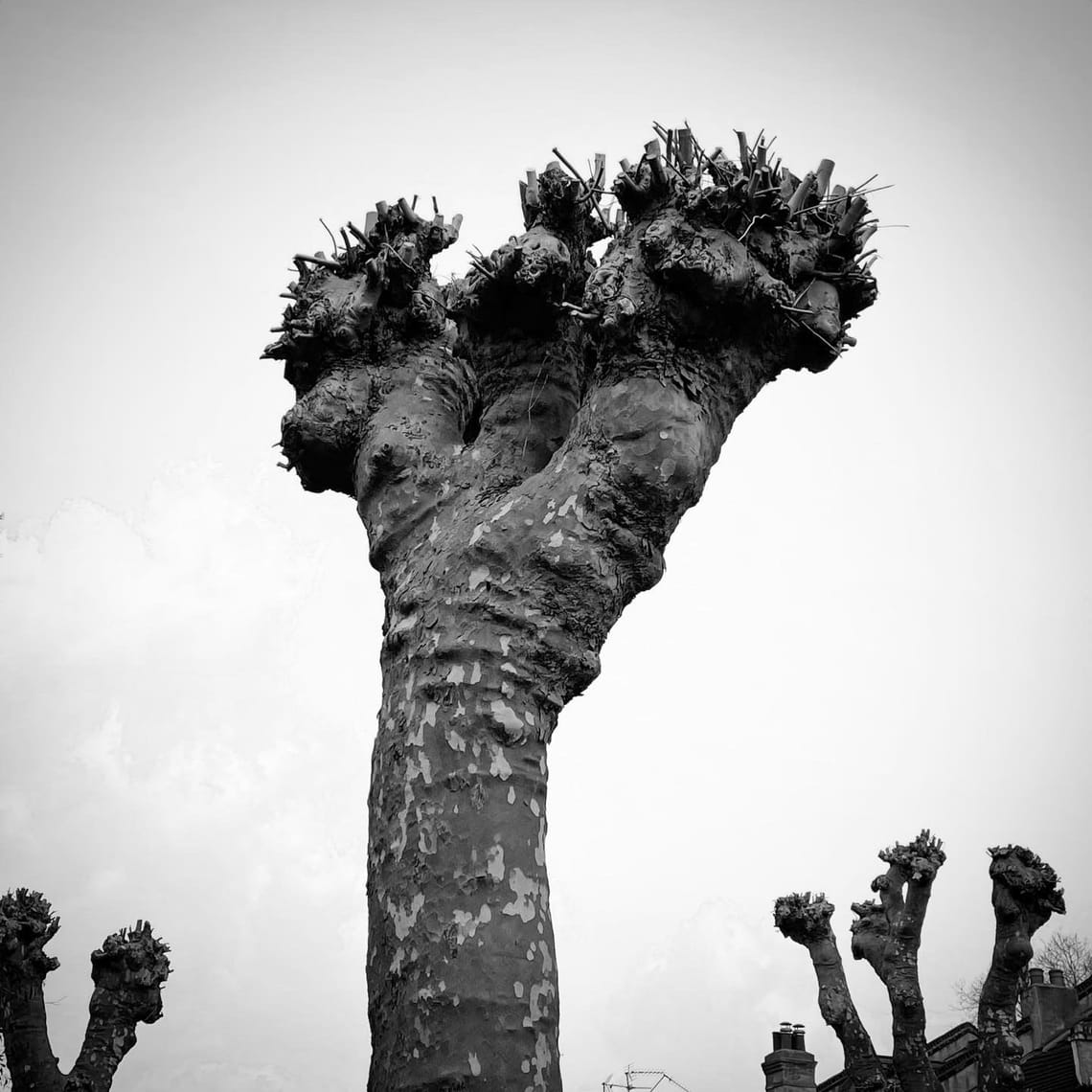
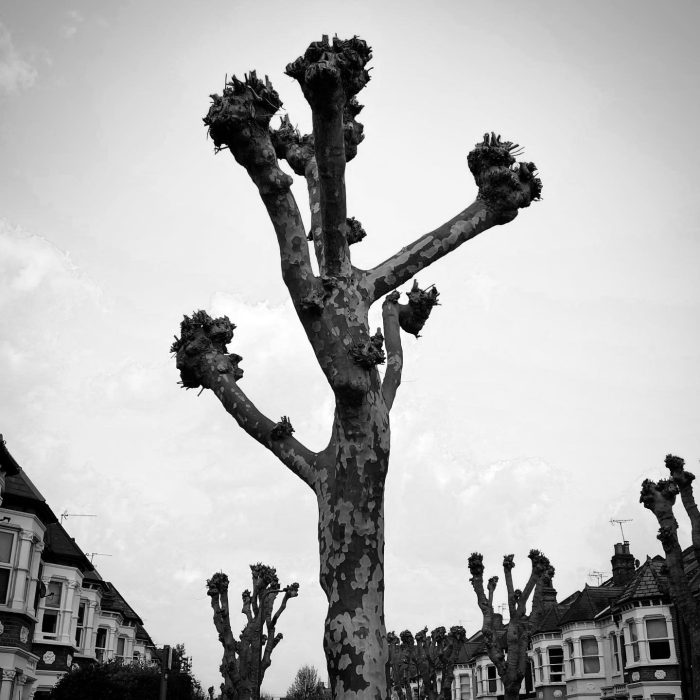
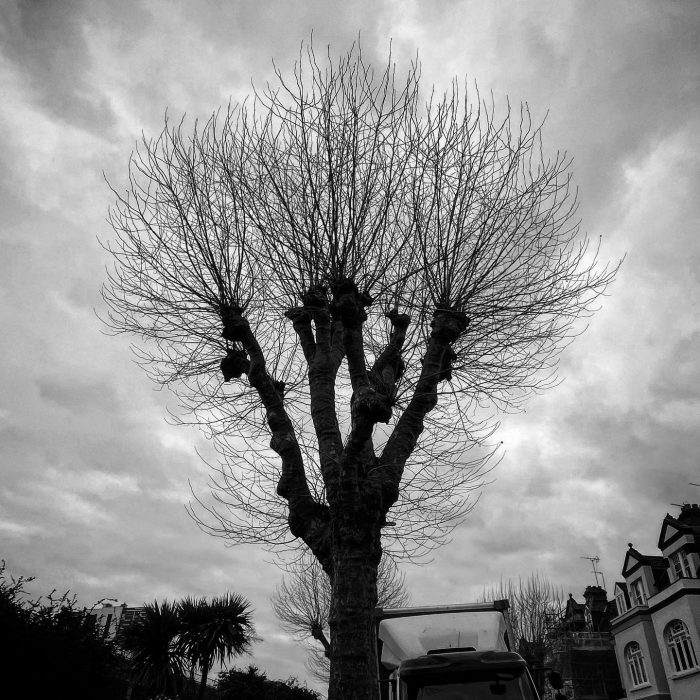
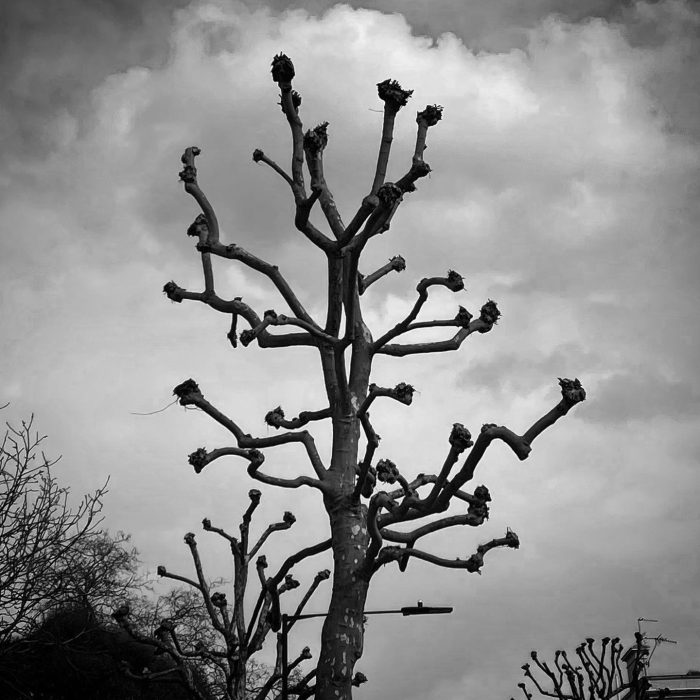
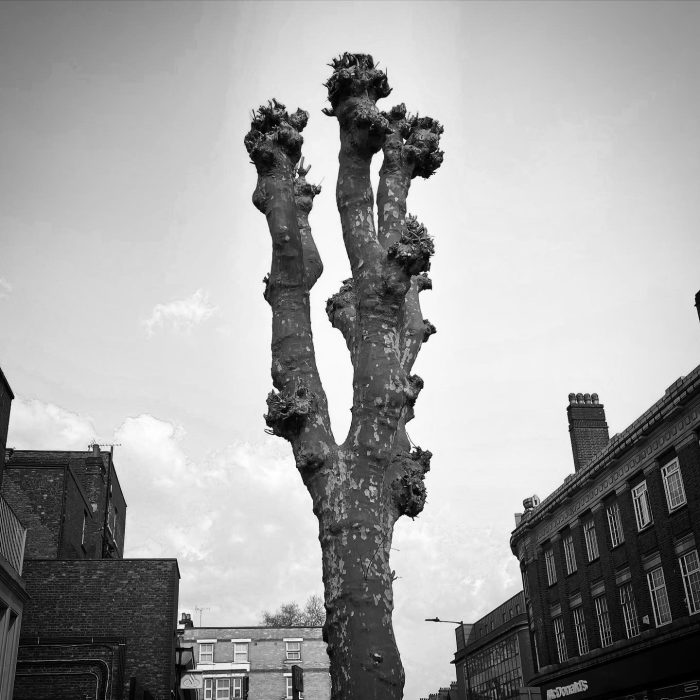
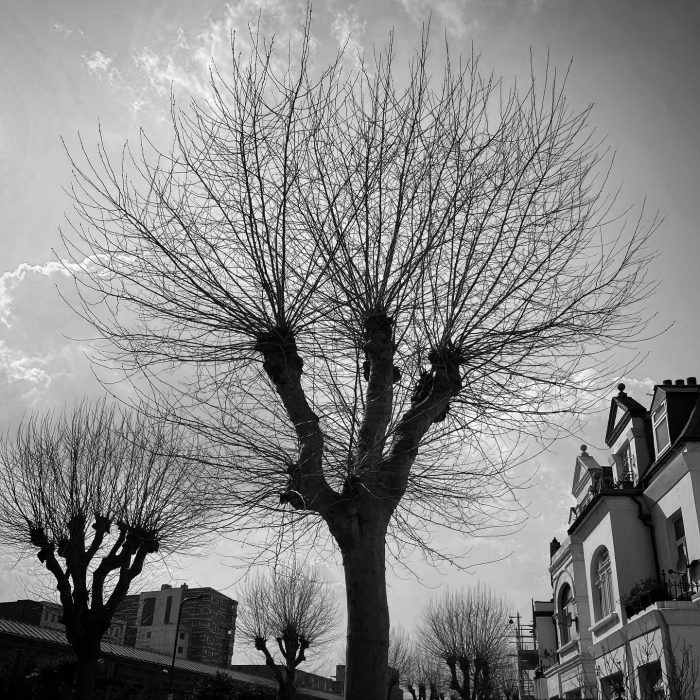
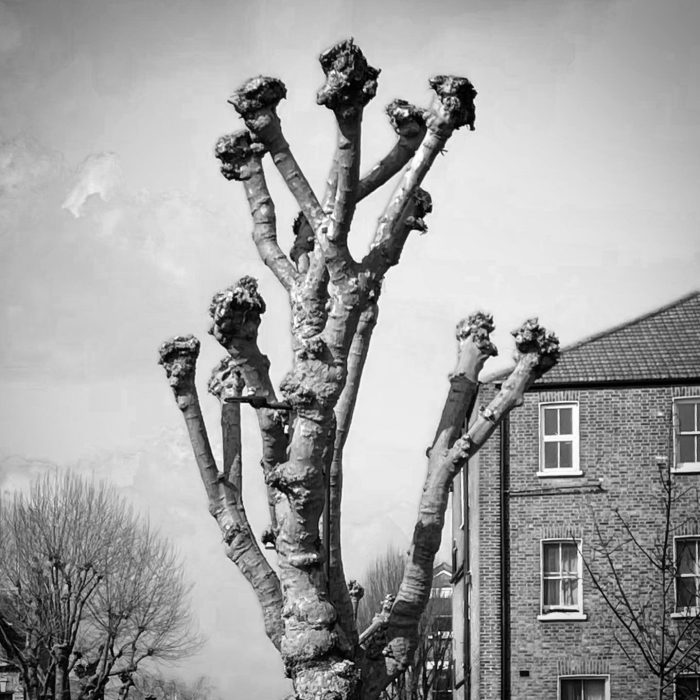
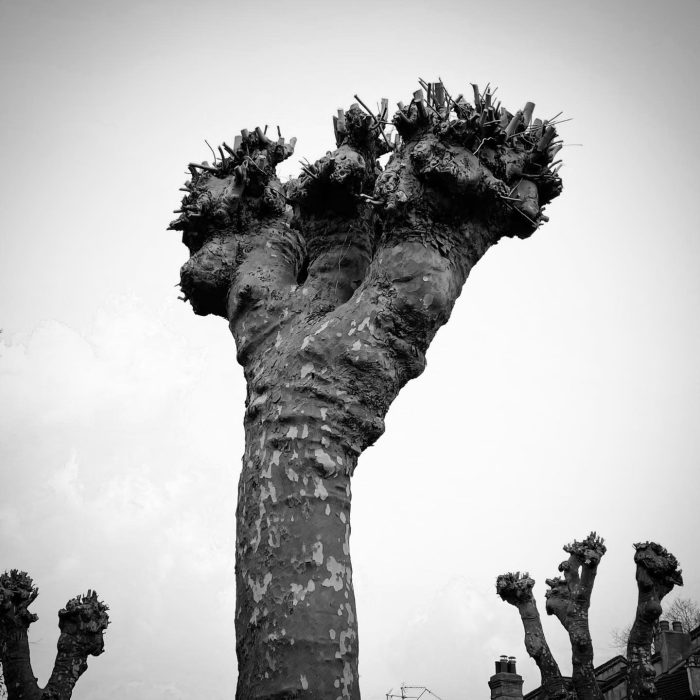
Aggressive pruning called pollarding creates streets lined with gnarled fists and statement hair.
Process
Gods



“Being an agnostic means all things are possible, even God… This world is so strange that anything may happen, or may not happen. Being an agnostic makes me live in a larger, a more fantastic kind of world, almost uncanny. It makes me more tolerant.”
Jorge Luis Borges
Process
After the End


Behind the scenes of After the End at Green-Wood Cemetery in Brooklyn, New York in 2021. James and I were miffed by the seams in the altar, so we decided to seal them with caulk and paint. The altar could potentially collapse under substantial weight, so I slithered onto it like Mission Impossible as everyone watched with bated breath. It worked out.
People often asked us how we got responses to the center of the altar. A very unfancy four-foot-long grabber tool.
Process
Emotional Granularity

“Emotional granularity isn’t just about having a rich vocabulary; it’s about experiencing the world, and yourself, more precisely… According to a collection of studies, finely grained, unpleasant feelings allow people to be more agile at regulating their emotions, less likely to drink excessively when stressed, and less likely to retaliate aggressively against someone who has hurt them… It gives your brain more precise tools for handling the myriad challenges that life throws at you.”
Lisa Feldman Barrett
Inspiration
The Handwritten Word
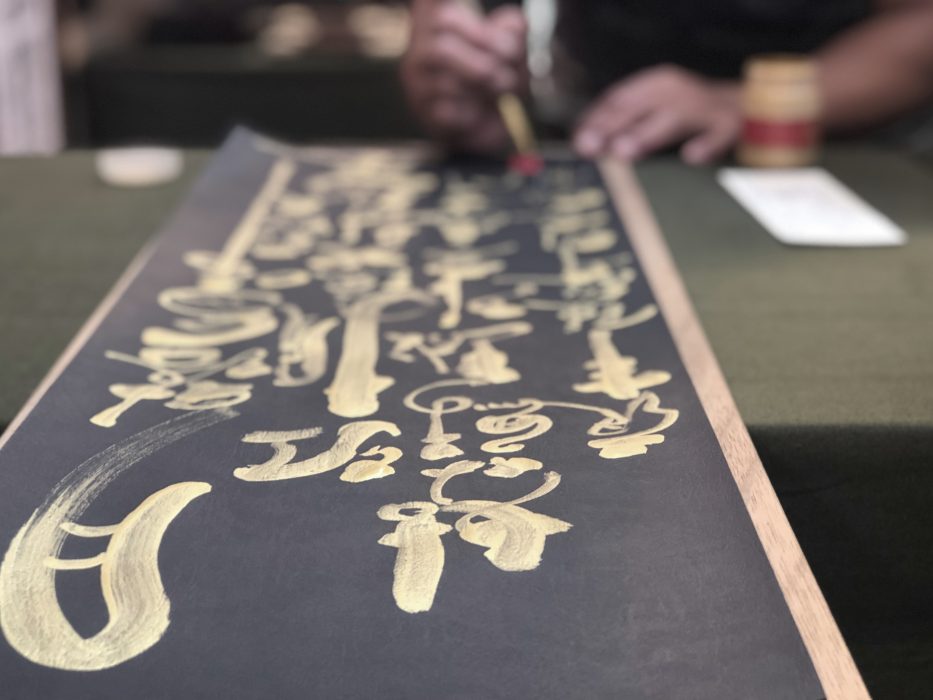
Growing up surrounded by Chinese calligraphy inspired my love for the handwritten word. My uncle took me to an art market in Taipei to gift me his favorite melancholy poem, written on-site by a local calligrapher. It’s about homesickness and he said it’s like the poet used five pebbles to make a mountain of sadness. There’s a reverence for meaningful sentiments written by hand, and I carry that through all of my participatory installations and paintings. It’s an act of devotion to these writers and their scribbled aches, like composing a hymn of our psyches in the early 21st century.
Inspiration
Grief and Humor Smashed
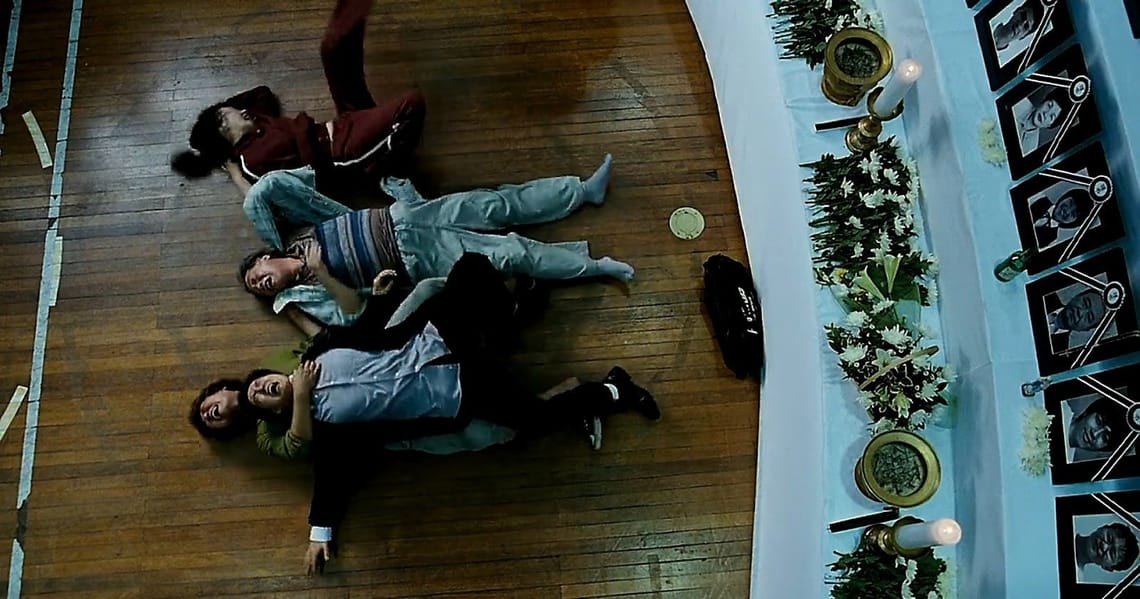
A family wails into a vulgar pile as cameras flash. From The Host by Bong Joon-ho.
Process
God Stamps
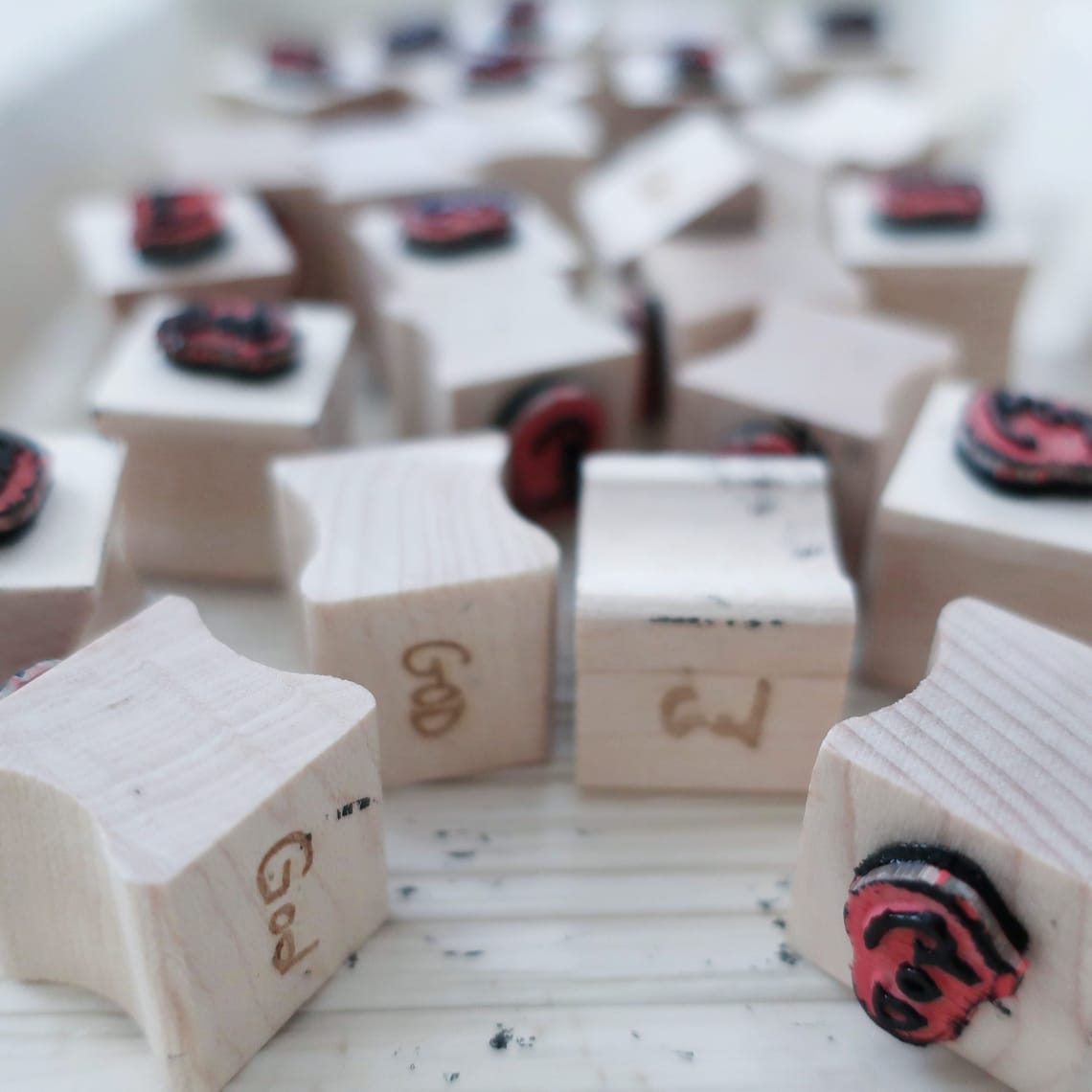

Inspiration
Sad Astronaut Movie Marathon
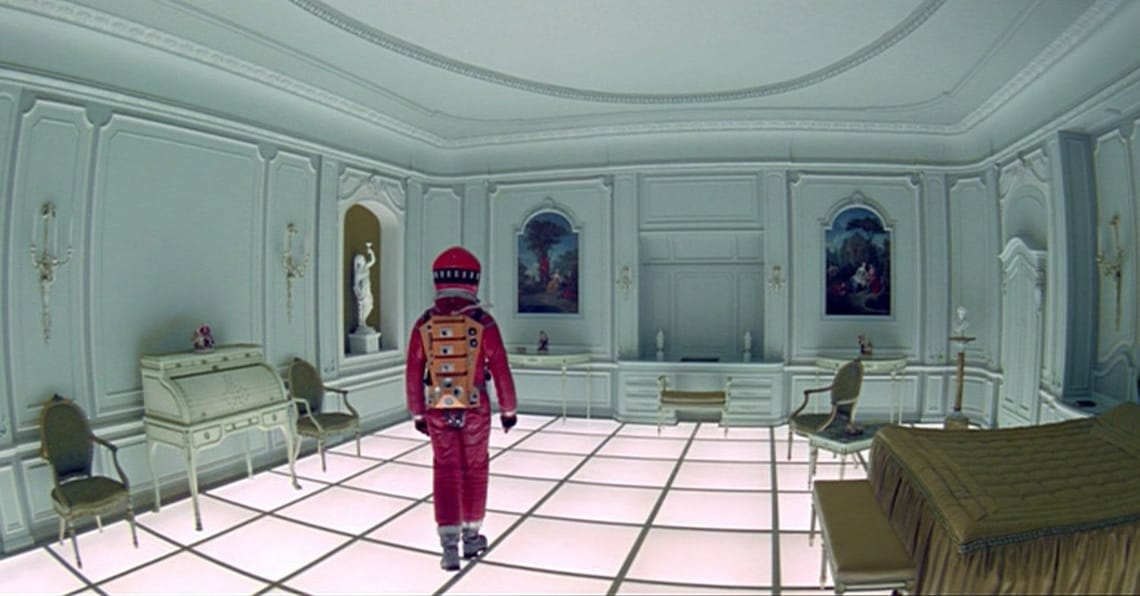




“Two possibilities exist: either we are alone in the Universe or we are not. Both are equally terrifying.”
Arthur C Clarke
Inspiration
Sad Priest Movie Marathon
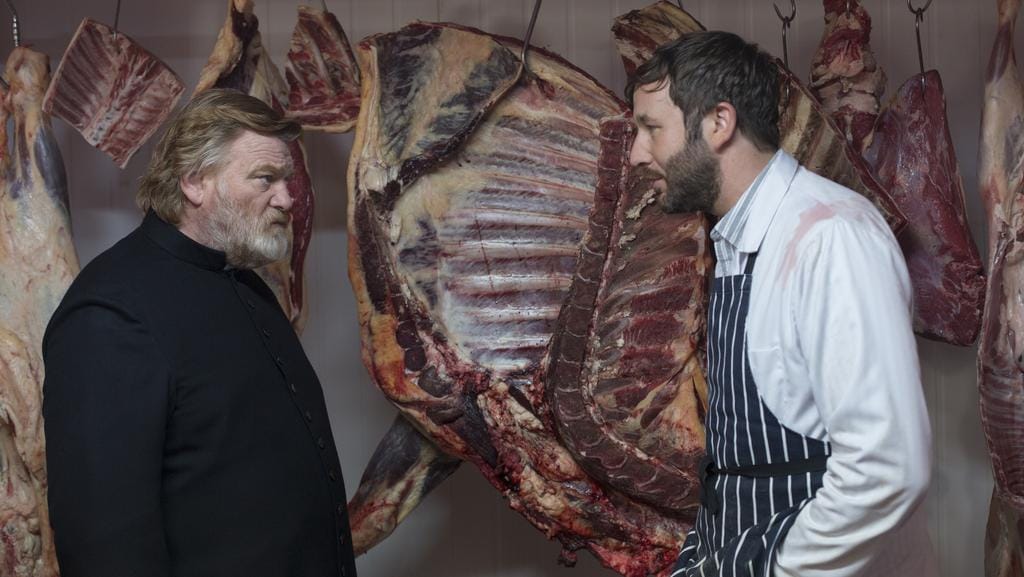


“Courage is the solution to despair. Reason provides no answers. I can’t know what the future will bring. We have to choose despite uncertainty. Wisdom is holding two contradictory truths in our mind, simultaneously, hope and despair… Holding these two ideas in our head is life itself.”
First Reformed by Paul Schrader
Inspiration
Devastating last sentence
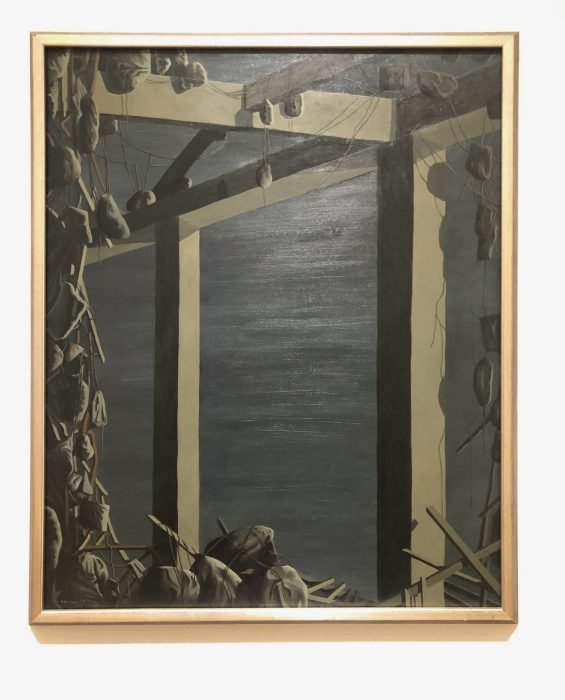
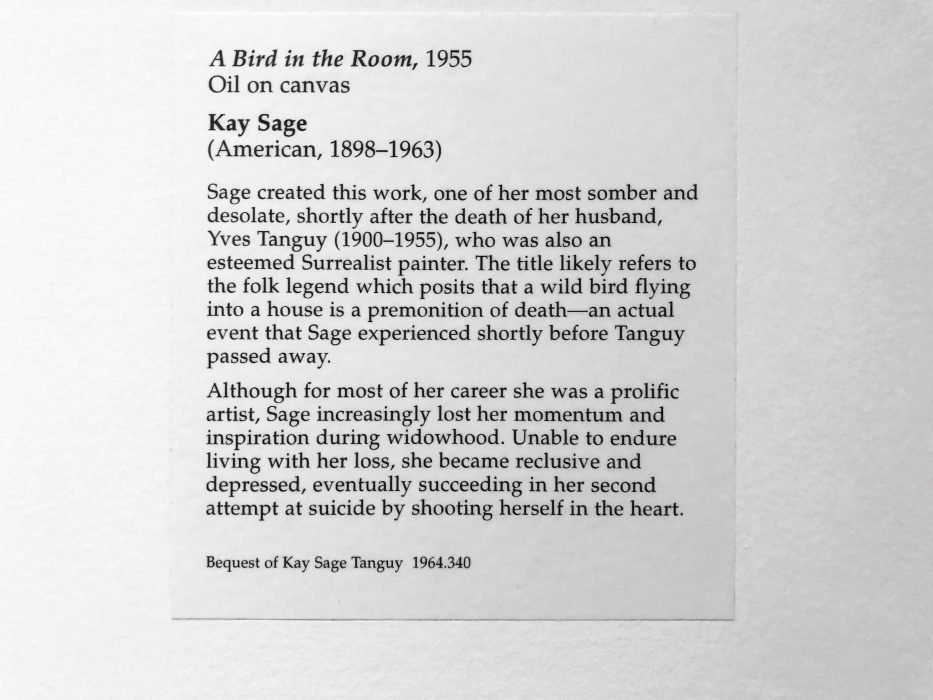
Inspiration
To Live Without God
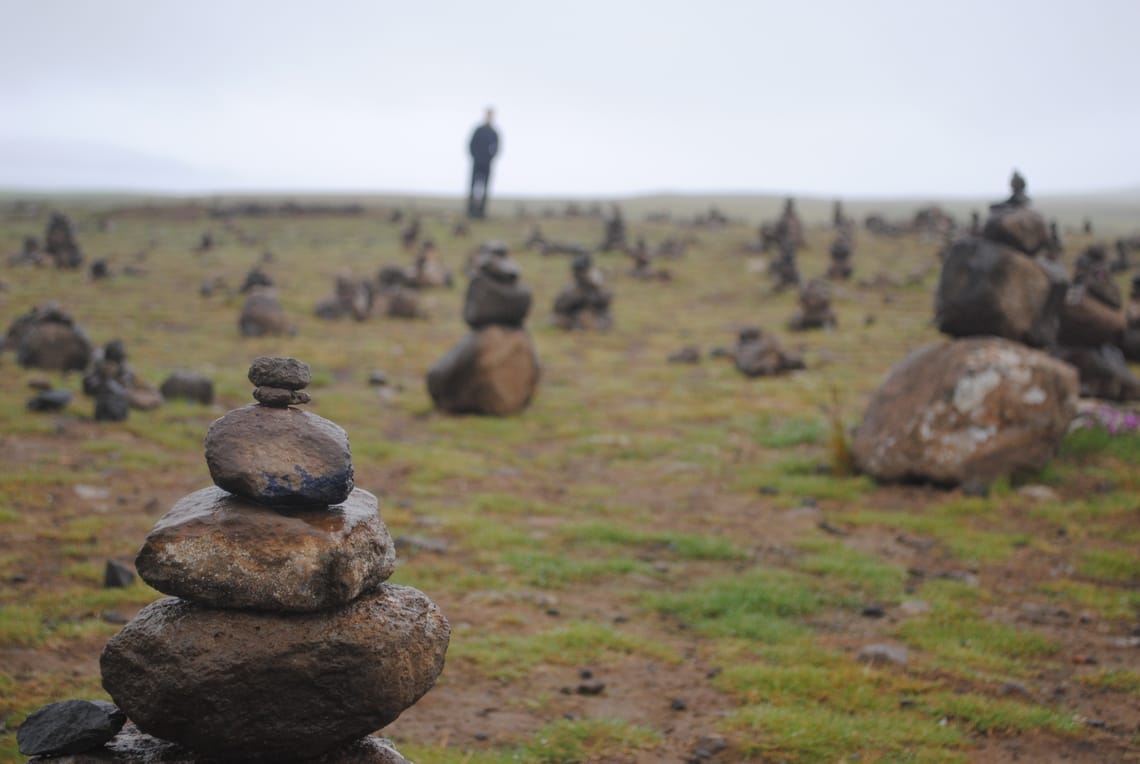
“The greatest question of our time is whether men can bear to live without God…. I cannot believe, in the face of biology, in the eternity of the individual self; nor, in the face of history, can I believe in a personal anthropomorphic God. But unlike the tougher minds of my time I miss these encouragements, and cannot quite forget the poetry with which they surrounded my youth… What immortality means to me now is that we are all parts of a whole… the whole is made forever different by what we have done and been… Perhaps the greatest Whole, to which in all generations the greatest souls have devoted themselves, will, in tomorrow’s religion, be called God.”Will Durant, 1932
Inspiration
Every Man is a Mob
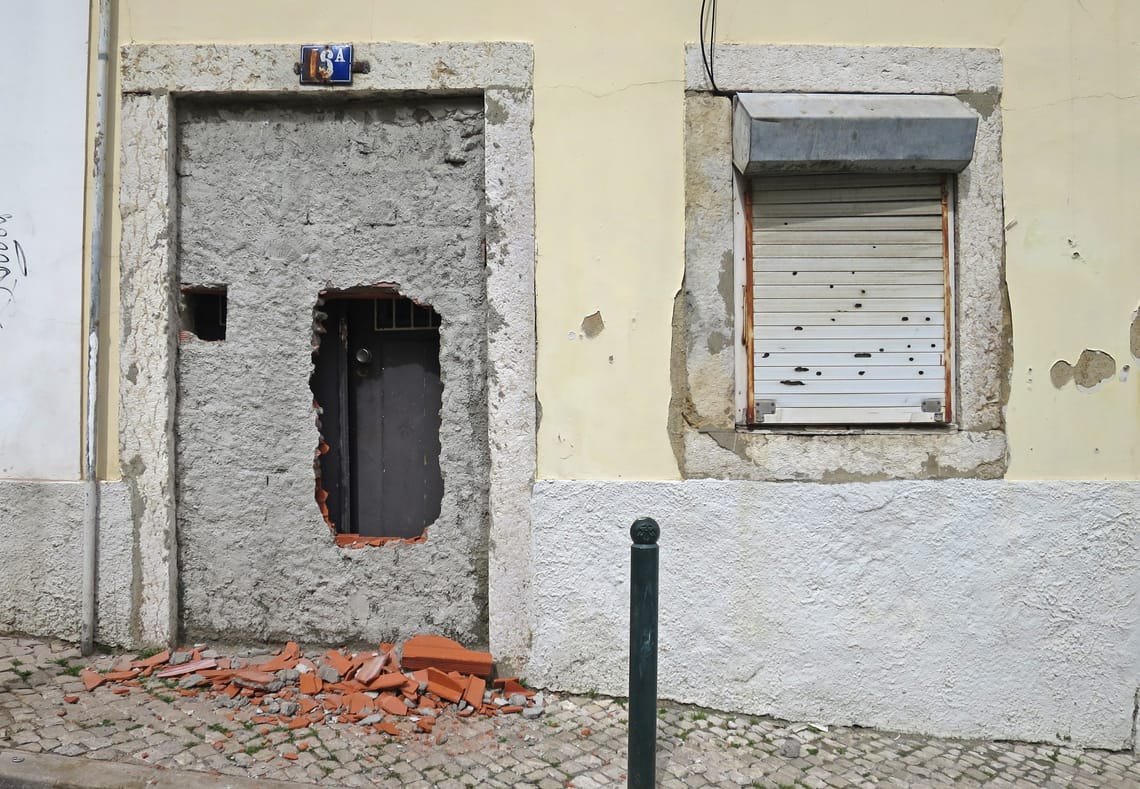
“Every man is a mob, a chain gain of idiots. This is the tragedy of life. Because for a few minutes of every day, every man becomes a genius… But then the genius has to hand over the controls to the next guy down the pike, most likely the guy who just wants to eat potato chips… The only way out of this mess, of course, is to take steps to ensure that you control the idiots that you become… The best way to do this is with a list.”
Memento Mori by Jonathan Nolan
Inspiration
Who She Is, Where She Belongs
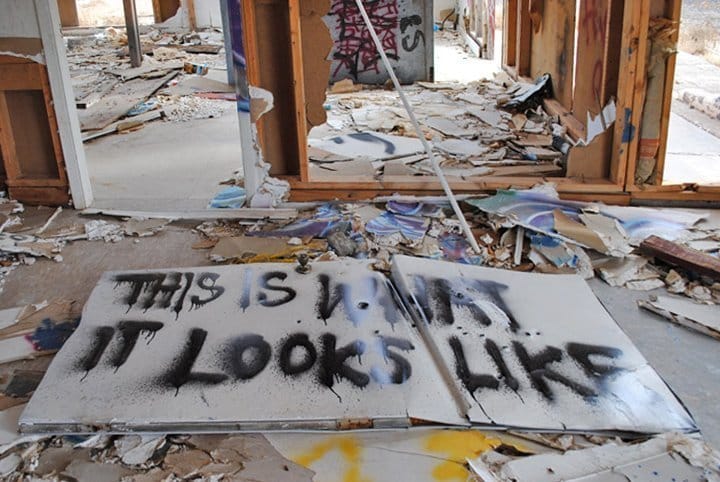
“In the thirteen years since Zema came to America, she has never had any idea that having no idea who she is and having no idea where she belongs makes her more American than anyone.”Shadowbahn by Steve Erickson
Inspiration
Memories in Circulation
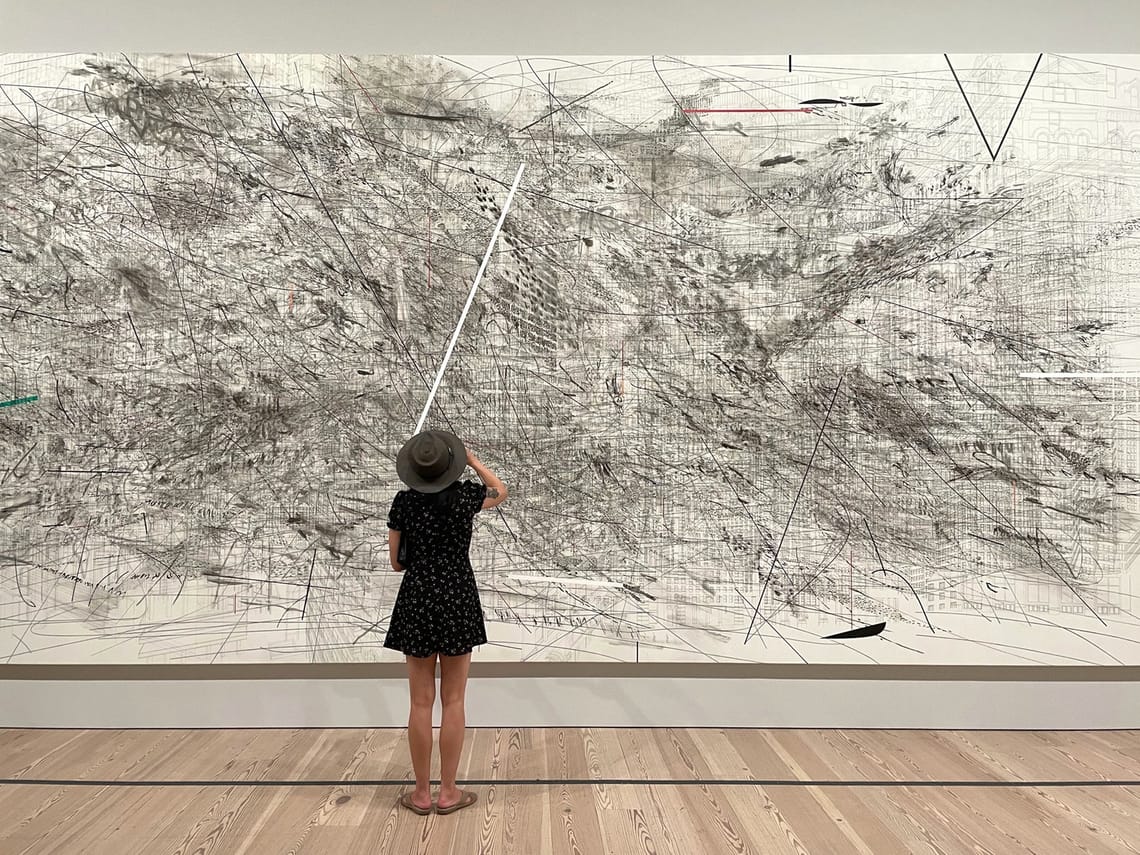
“Strangely, the memory of eating eggs on Chinese New Year was one that my mother later told to me as well, except in this version, it was she who had grown up in the countryside—even though she had actually grown up in Fuzhou city proper. It was as if she had absorbed her husband’s memories as her own. Or maybe she was trying to speak for him, to keep his memories in circulation.”— Severance by Ling Ma
Process
Koans for 2020
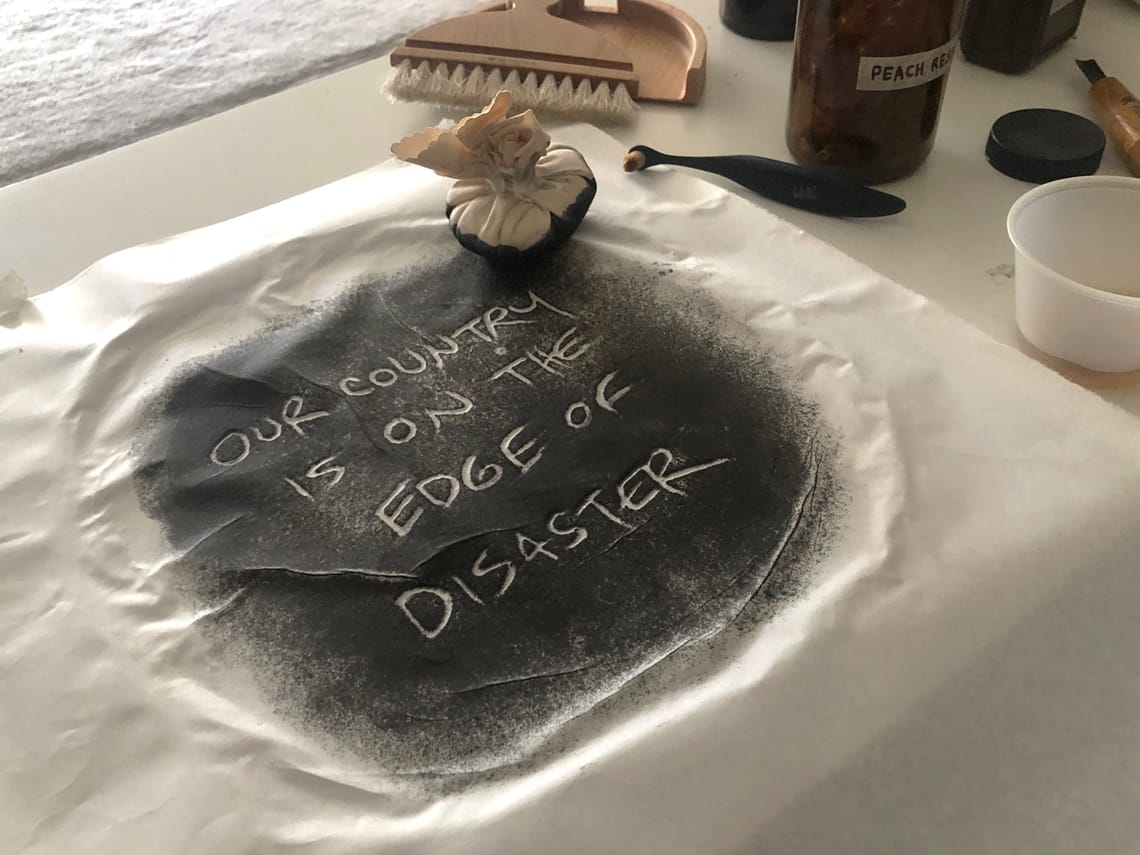



Inspiration
Small Dull Smears of Meditative Panic

“He said we do this all the time, all of us, we become ourselves beneath the running thoughts and dim images, wondering idly when we’ll die. This is how we live and think whether we know it or not. These are the unsorted thoughts we have looking out the train window, small dull smears of meditative panic.”Point Omega by Don DeLillo
Process
Lighting for the Nocturnal
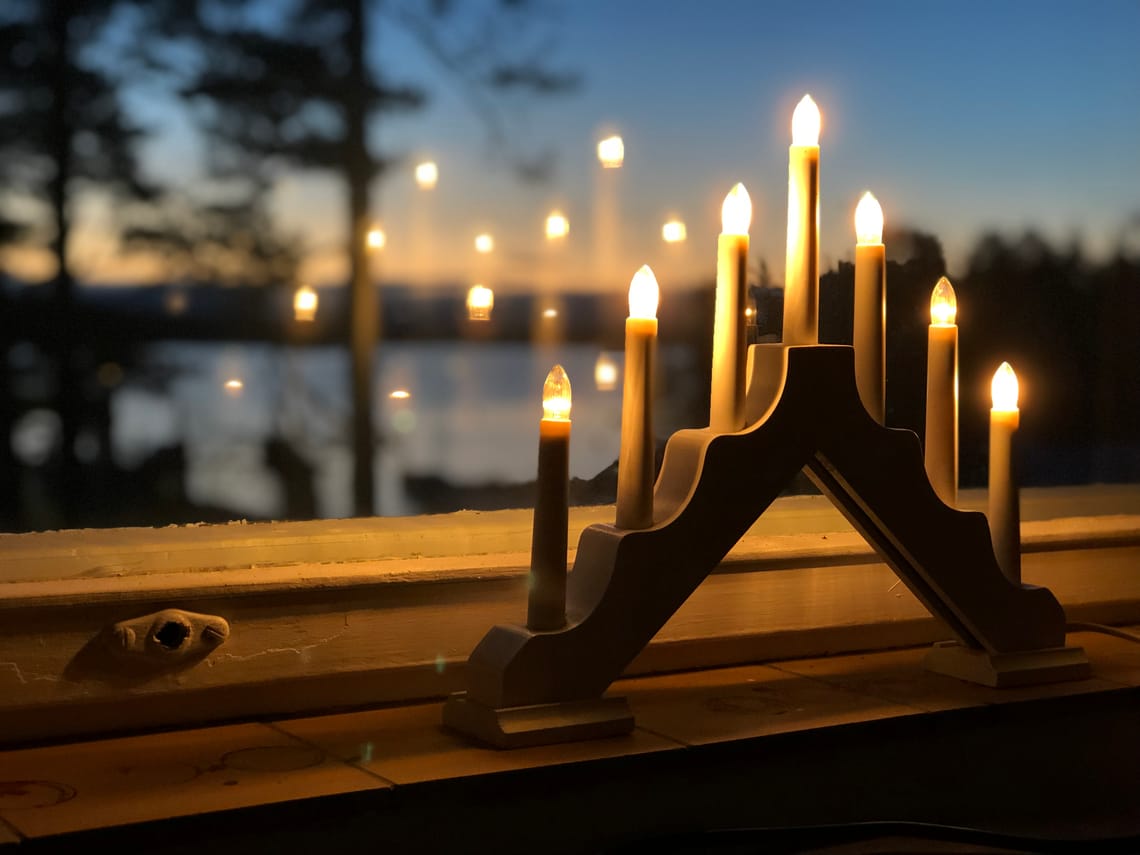
In the nearby city of Turku, grids of these now-secular Swedish Advent candelabras line the windows of apartments and office buildings alike, casting a meditative and communal mood on the streets like a temple.
Inspiration
Public Art + Time
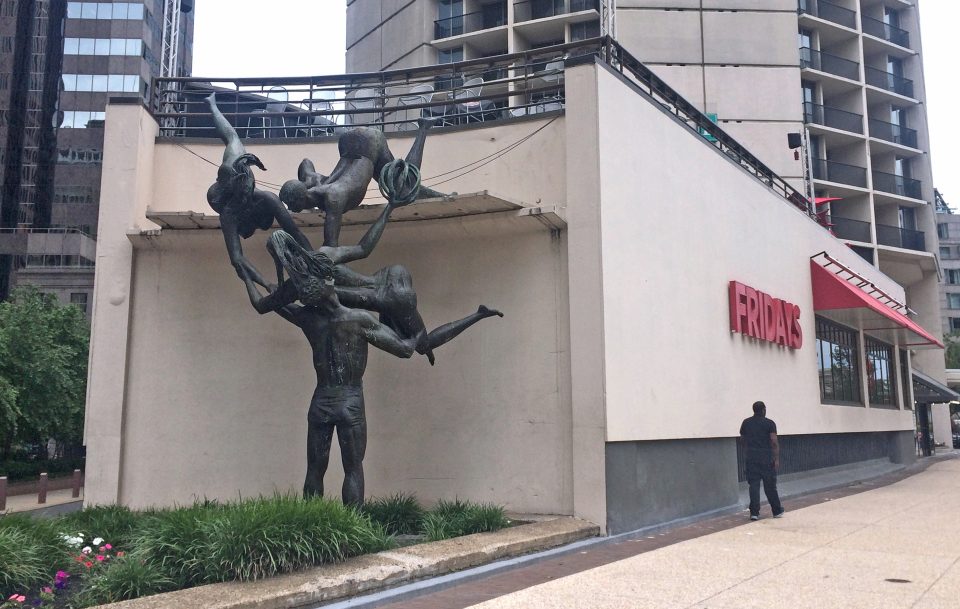
This is one of my favorite public artworks. A 1965 water fountain sculpture is now just a bunch of people scrambling the hell out of TGI Fridays. The city goes on.
Inspiration
Pliancy and Weakness
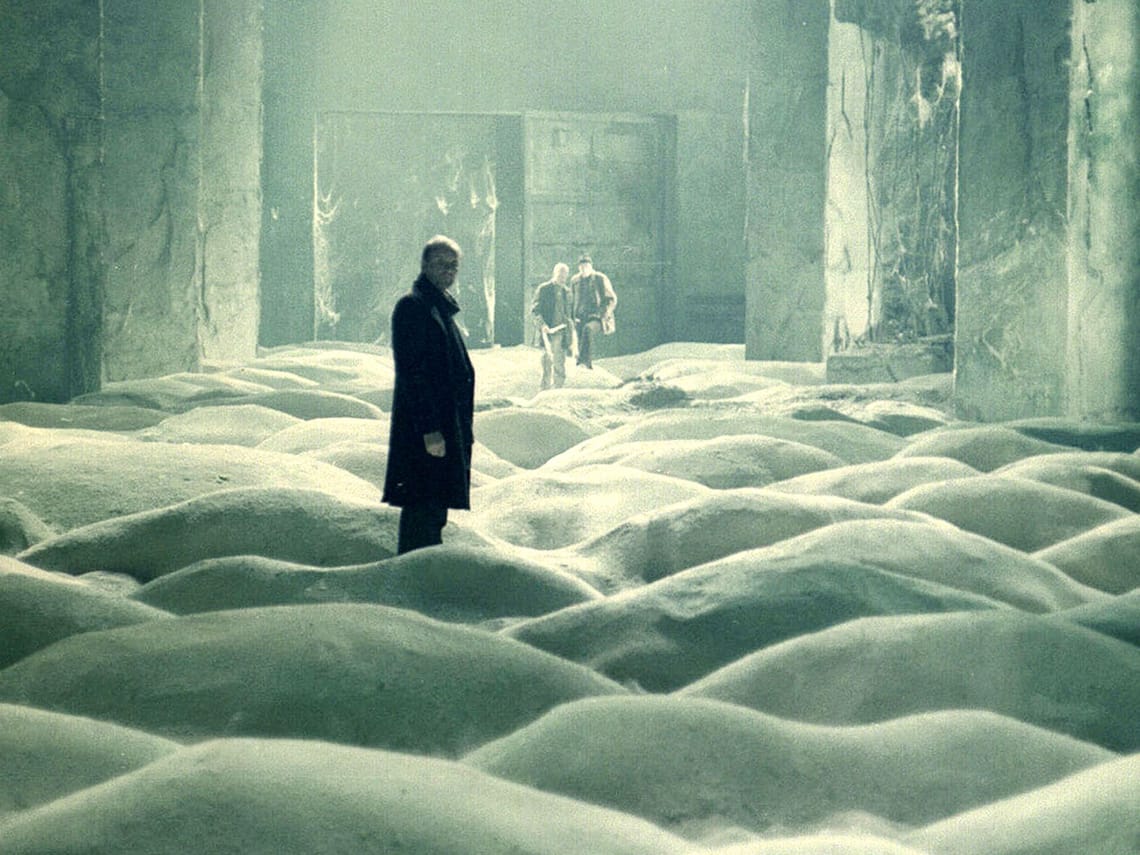
“Pliancy and weakness are expressions of the freshness of being. Because what has hardened will never win.”
Stalker by Andrei Tarkovsky
Inspiration
Confusion
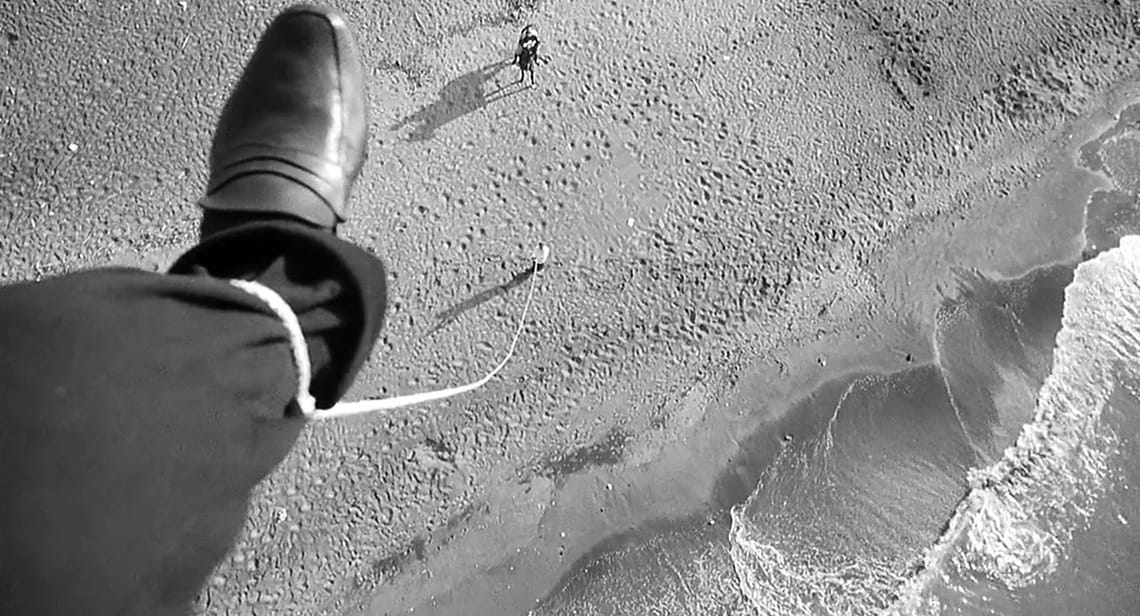
“But this confusion is me as I am, not as I’d like to be. I’m no longer afraid of telling the truth about what I don’t know, what I’m looking for, what I haven’t found. Only this way do I feel alive.”8 1/2 by Federico Fellini
Process
Light the Barricades
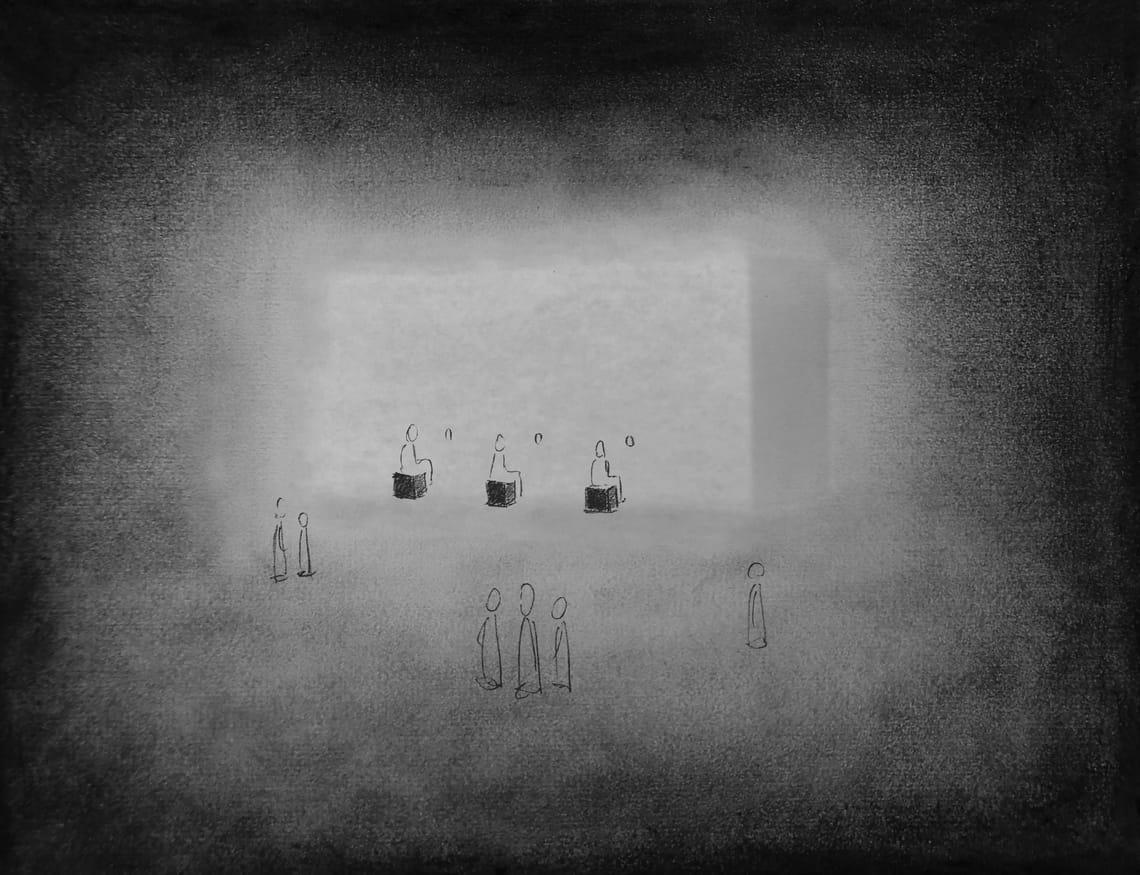





Behind the scenes of Light the Barricades in Los Angeles in 2019. When it traveled to Charlotte, the Doubt lightbox happened to stand in the backdrop of a wedding ceremony. They covered the word.
Inspiration
The City of the Dead
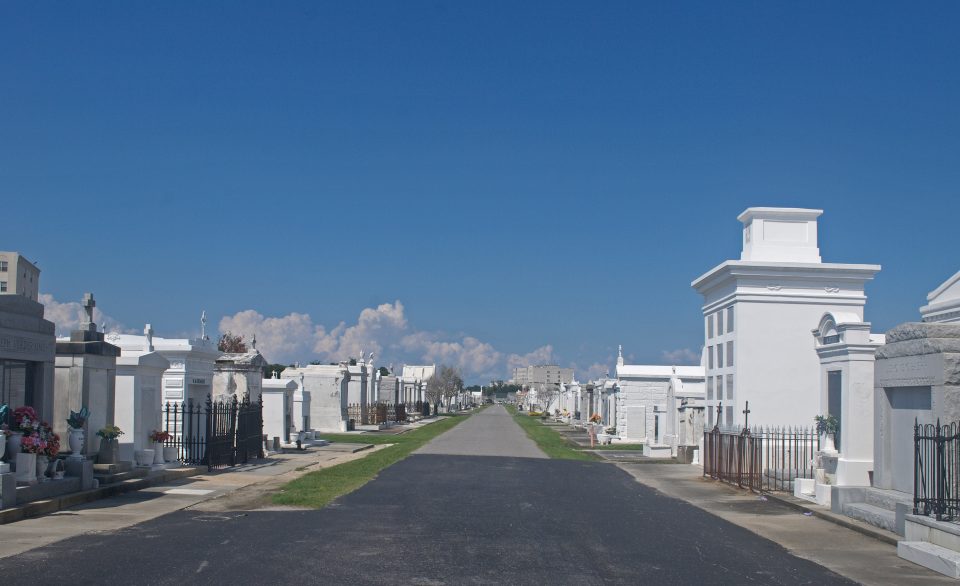
“Soon after one picks up man’s trail in the earliest campfire or chipped-stone tool one finds evidence of interests and anxieties that have no animal counterpart; in particular, a ceremonious concern for the dead, manifested in their deliberate burial—with growing evidences of pious apprehension and dread… Mid the uneasy wanderings of paleolithic man, the dead were the first to have a permanent dwelling: a cavern, a mound marked by a cairn, a collective barrow. These were landmarks to which the living probably returned at intervals, to commune with or placate the ancestral spirits… The city of the dead antedates the city of the living.”
Lewis Mumford, The City in History (1961)
Inspiration
A Ritual for Atonement
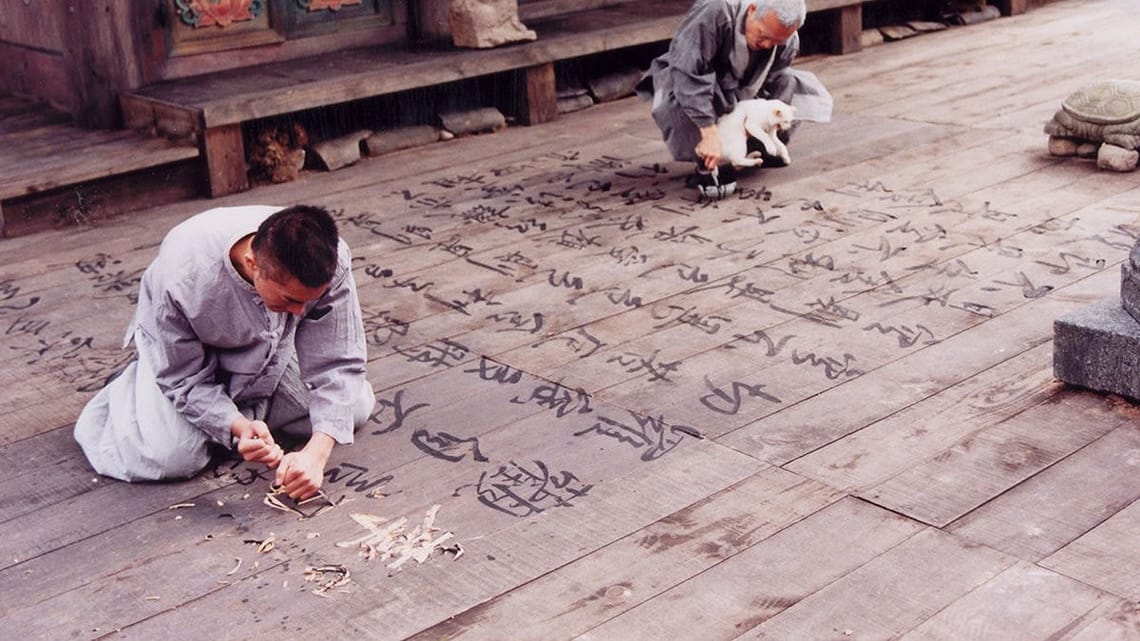
On a temple floating in the middle of a lake, an old monk writes sutras on the wooden deck with a cat’s tail dipped in ink. A student is instructed to methodically carve these characters with the same knife he once used in destructive ways. From the film Spring, Summer, Fall, Winter… and Spring directed by Kim Ki-duk.
Inspiration
Happy New Year
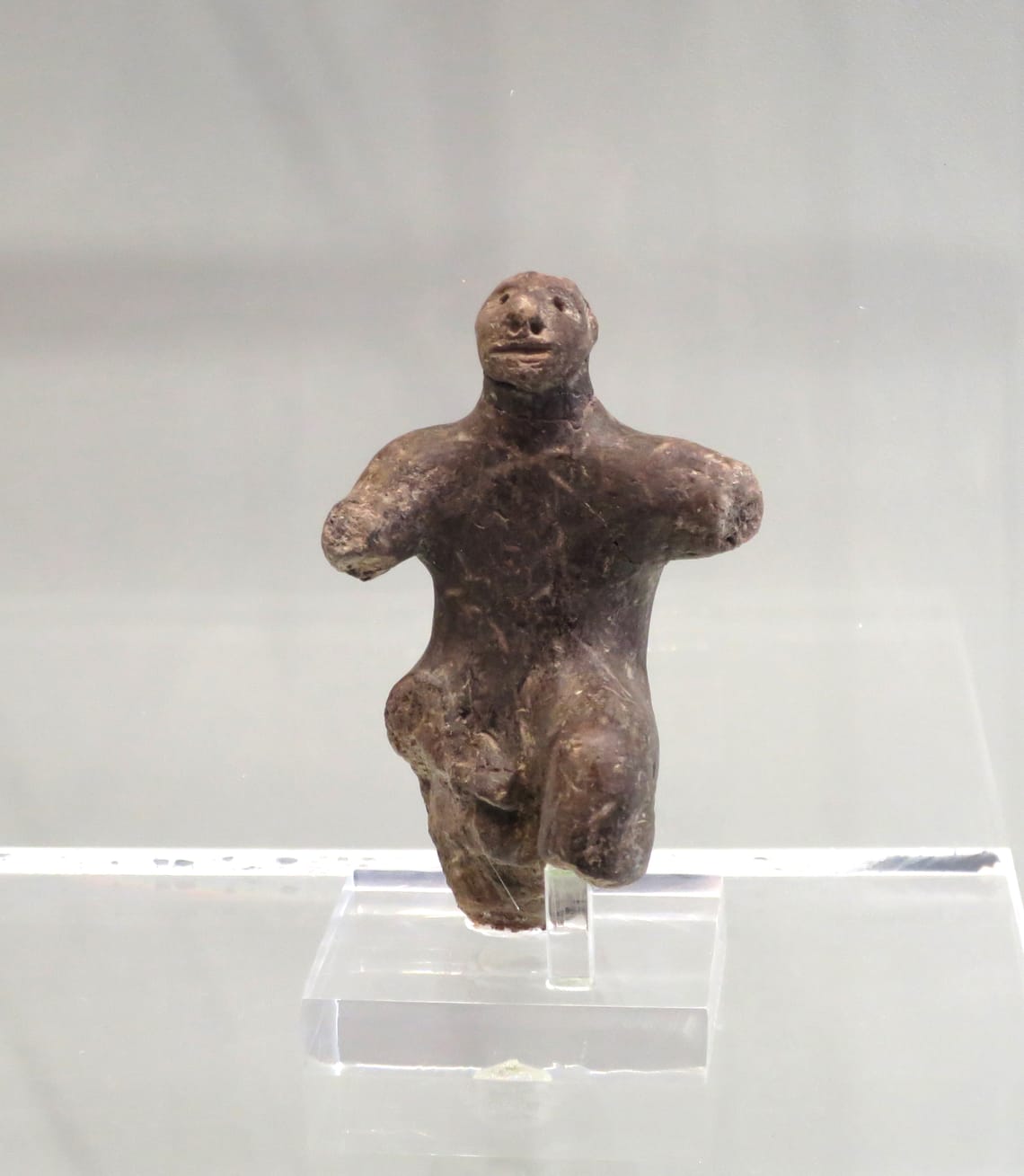
Around 6000 B.C. someone in Knossos made this guy from a little piece of rock. Happy 8,017th New Year to him.
Inspiration
Chinese seal
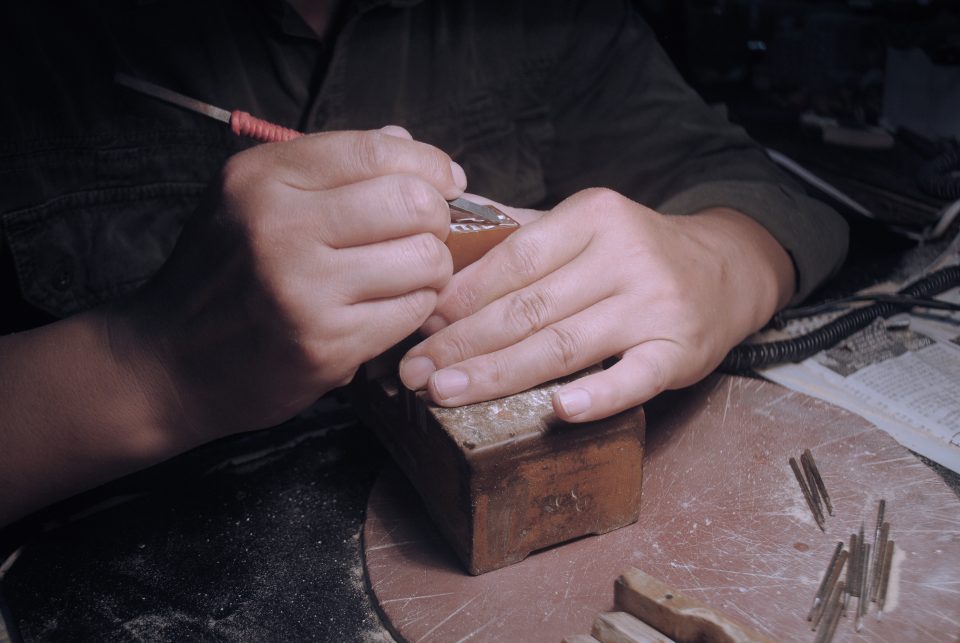
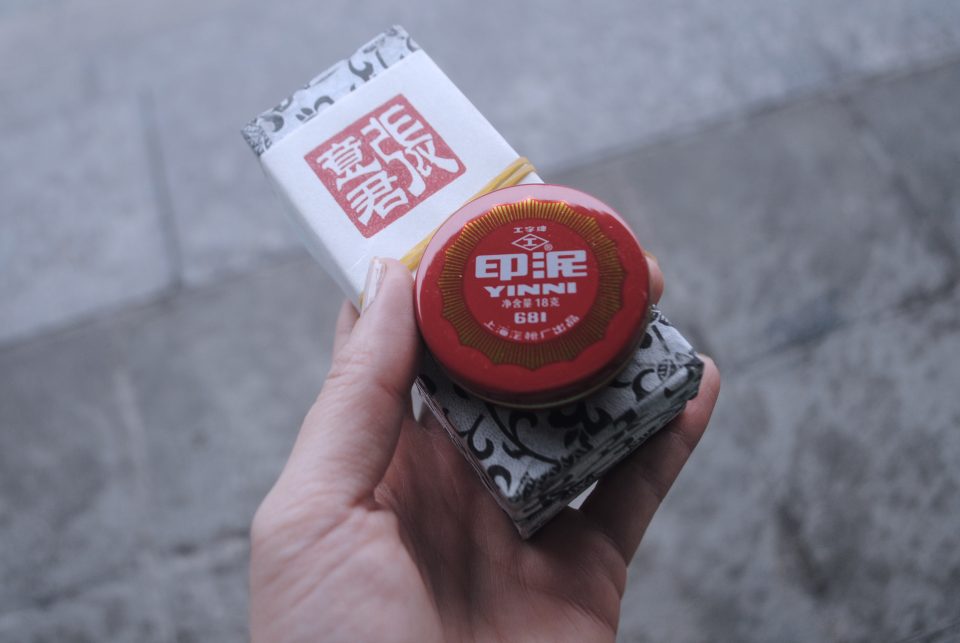
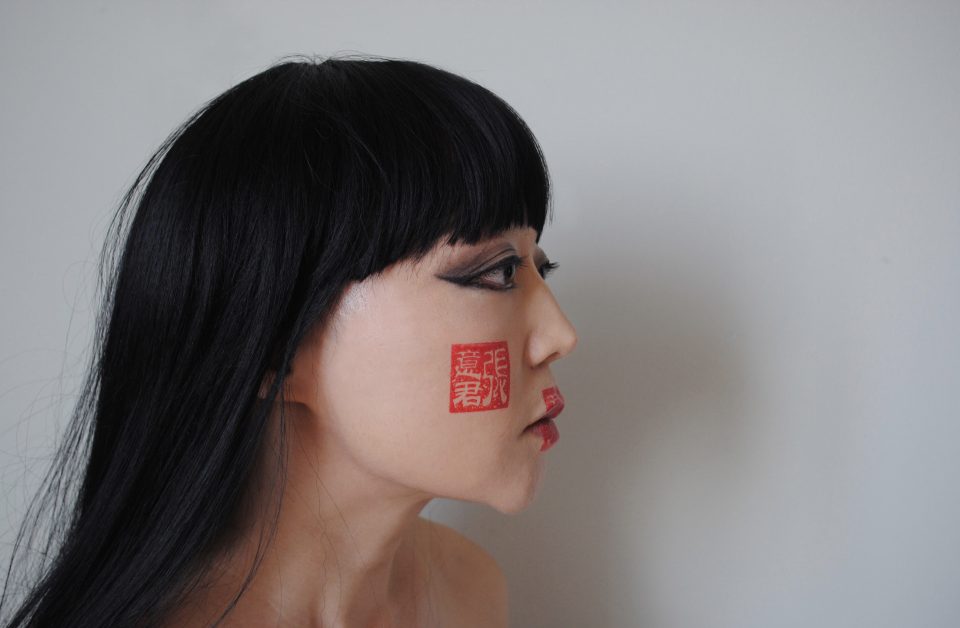
Inspiration
At Age Fifty-Nine

“For twenty-five years, from the time she began to exhibit her work, critics praised her art but she sold almost nothing. Then in 1958, at age fifty-nine, she hit the big time. And during the next twenty-eight years of non-stop work she churned out thousands of sculptures, collages, drawings, and prints, and she became a star… Long before the women’s movement got underway, Nevelson was living the life she wanted, sleeping with the men she was attracted to, swearing like a sailor, and never taking a day job… ‘If you have talent and don’t use it, it makes you neurotic and you die.'”
Louise Nevelson: Light and Shadow by Laurie Wilson
Inspiration
In the Sky Suddenly Divested of its Sun Something Relaxes
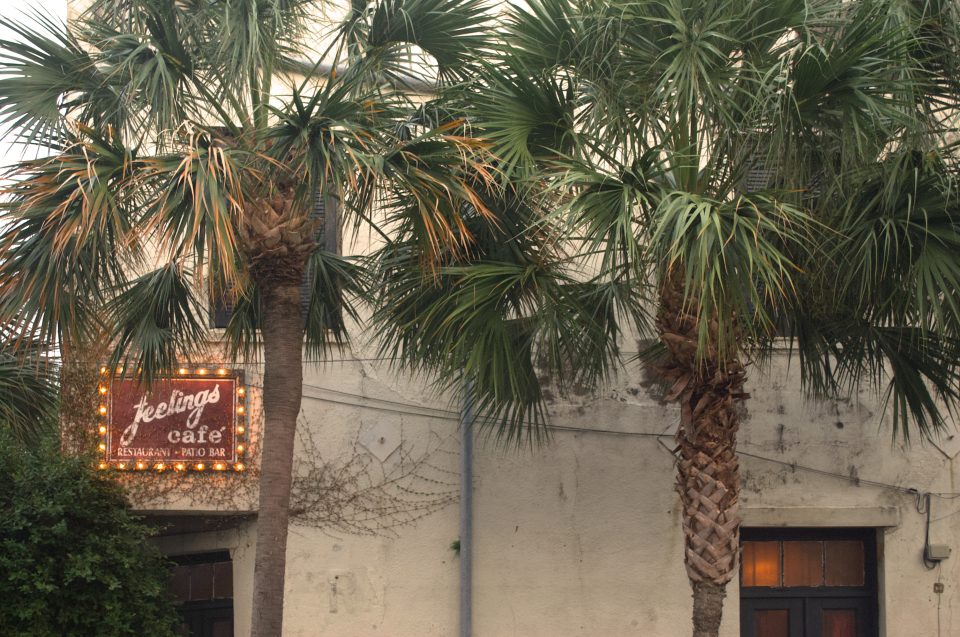
“The loves we share with a city are often secret loves… In the sky suddenly divested of its sun something relaxes… To feel one’s attachment to a certain region, one’s love for a certain group of men, to know that there is always a spot where one’s heart will feel at peace — these are many certainties for a single human life.”
Summer in Algiers (1936) by Albert Camus
Inspiration
Tiny Frightened Animals

“In the end, we are only tiny frightened animals, doing our best to survive amid other tiny frightened animals.”
James Hollis
Inspiration
Walking

“Above all, do not lose your desire to walk: every day I walk myself into a state of well-being and walk away from every illness; I have walked myself into my best thoughts.”
Søren Kierkegaard
Inspiration
Passengers of Houses
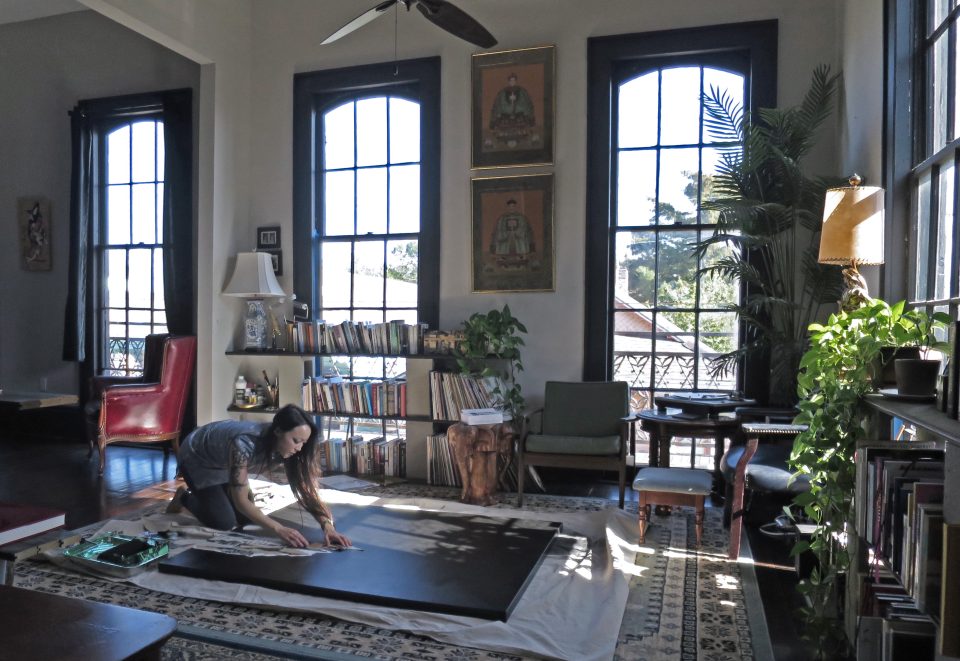
I once read an old book about New Orleans that called residents “passengers” of houses. I like that.
Inspiration
Cities

“But as the city has been losing functions it has been reasserting its most ancient one: a place where people come together, face-to-face. More than ever, the center is the place for news and gossip, for the creation of ideas, for marketing them and swiping them, for hatching deals, for starting parades… This is the engine, the city’s true export. Whatever makes this congress easier, more spontaneous, more enjoyable is not at all a frill. It is the heart of the center of the city.”
City: Rediscovering the Center (1988) by William Whyte
Inspiration
A Tear of Petrol in Your Eye
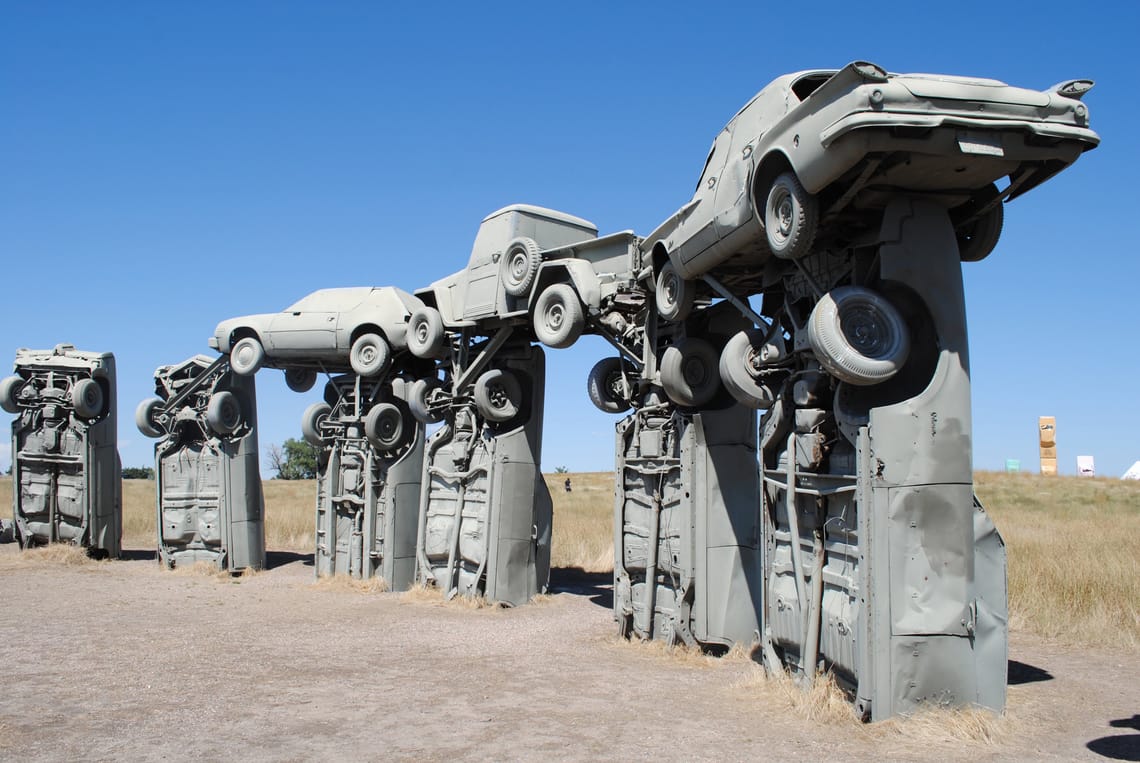
“A tear of petrol is in your eye. The hand brake penetrates your thigh. Quick – let’s make love before you die.”
The Normal
Inspiration
Inward and Outward Life
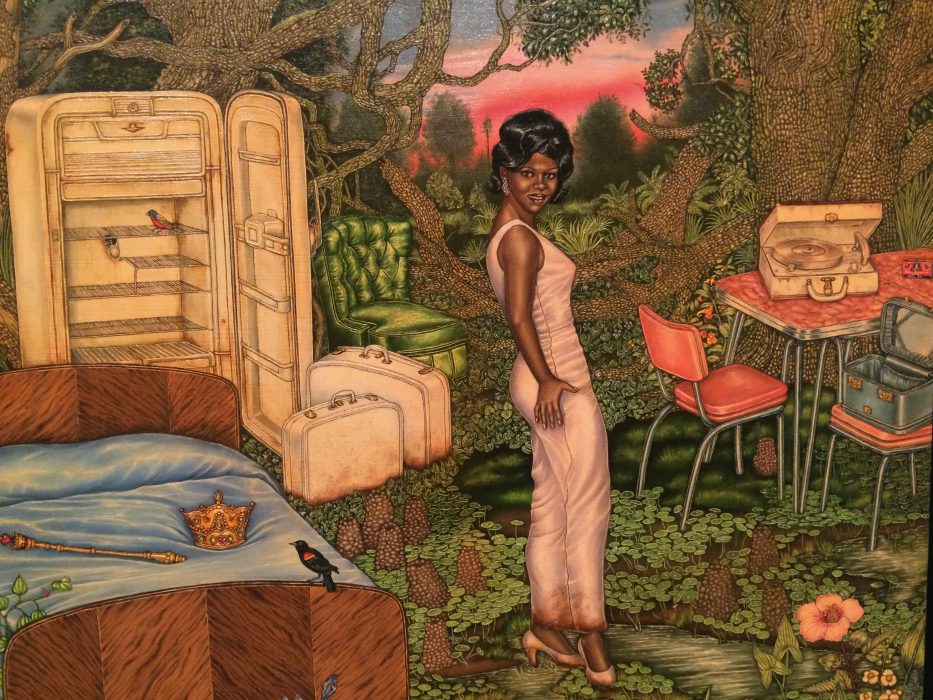
“To a greater or lesser extent there goes on in every person a struggle between two forces: the longing for privacy and the urge to go places: the introversion, interest directed within oneself toward one’s own inner life of vigorous thought and fancy; and extroversion, interest directed outward, toward the external world of people and tangible values.”
Vladimir Nabokov
Inspiration
A Certain Alienated Majesty
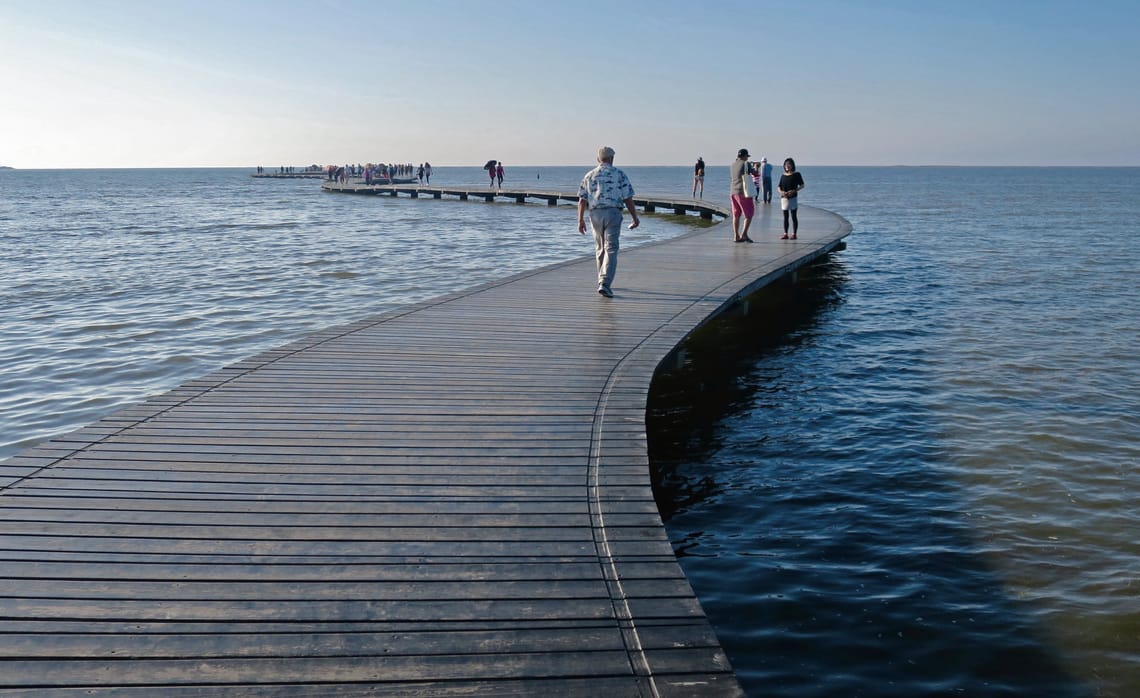
“In every work of genius we recognize our own rejected thoughts: they come back to us with a certain alienated majesty.”
Ralph Waldo Emerson
Inspiration
Traveling Alone
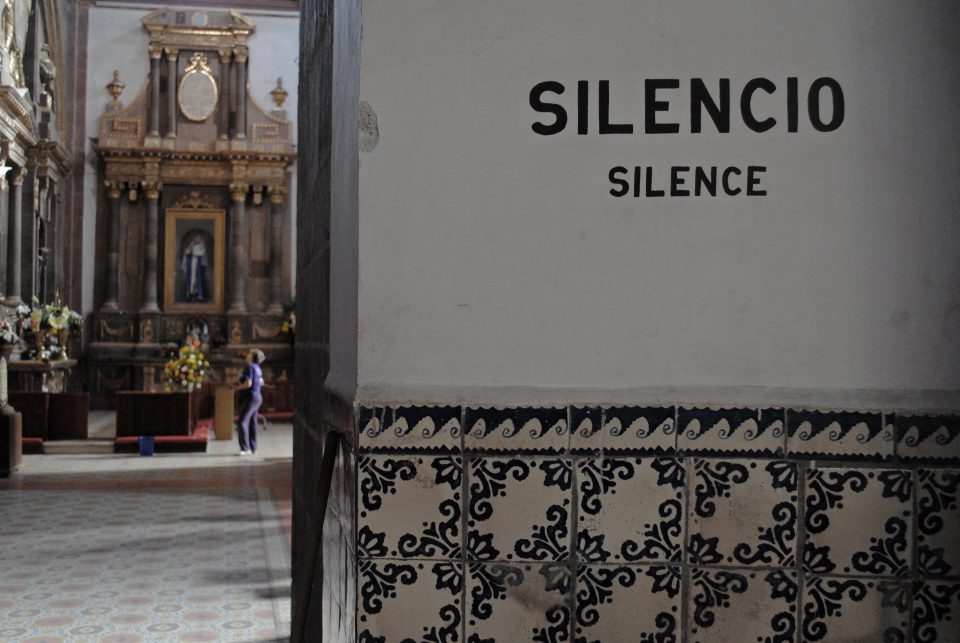
“Spells of acute loneliness are an essential part of travel. Loneliness makes things happen.”
Jonathan Raban
Inspiration
To Live Without Certainty
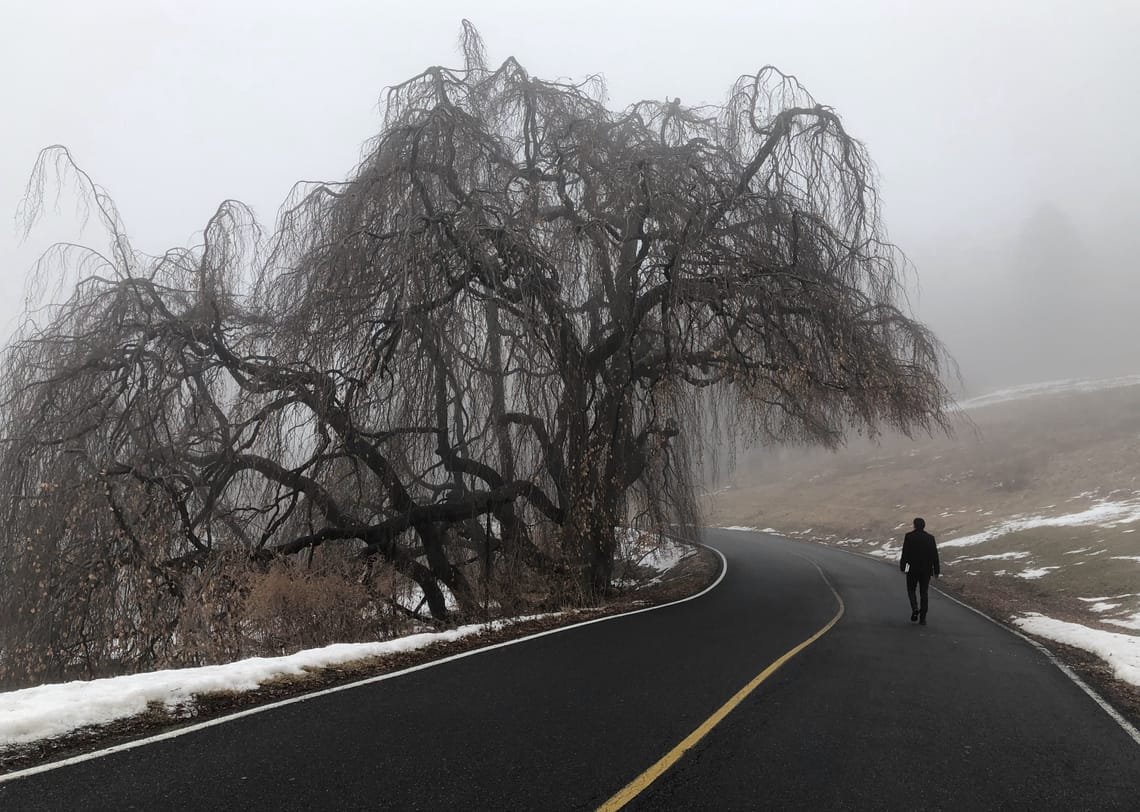
“To teach how to live without certainty, and yet without being paralyzed by hesitation, is perhaps the chief thing that philosophy, in our age, can still do for those who study it.” The History of Western Philosophy (1946) by Bertrand Russell
Inspiration
Form Follows Tax Laws
Shotgun houses are so damn cute I want to pet them. They say it’s thanks to New Orleans’ tax laws and people trying to get Best Value. The government taxed property based on lot frontage, so people made their houses as narrow as possible. The government taxed two-story houses more, so people added second floors to the rear, where it didn’t count. The government taxed houses based on the number of rooms, so people didn’t make closets or hallways, which counted as rooms. And presto, the Best Value House looks like this:

As wide as a room, up to a half block long, made of consecutive hallway-less rooms, and sometimes with second floors in back (like above, a typology now know as the Camelback). Doors are arranged so that in some homes you could potentially shoot a shotgun straight through from the porch to the backyard, hence the name. Or in more peaceful terms, you could line up seven Slip-n-Slides in a row and have the ride of your life.

And in more Best Value strategies, people often joined forces to save on property width. Known as a Double-barrel Shotgun, two homes share the same roof and a central wall (above). This is the kind of house I now live in, owned by my friends next door. Our homes are each one room wide and a half block long (12.5 ft x ~120 ft) and completely separate except for the backyard and the porch, where we open our wood shutters every morning and say “Damn it’s hot!” and chat with passers-by and feed the neighborhood cat. Interiors are wood-floored and a grand 13′ tall to keep it cool, and ceiling fans add a classy breeze. Everyone is sitting on porches and riding their bikes and saying hello next to little houses and storefronts painted green, pink, and yellow. It all adds up to a neighborhood that feels like it was drawn by a five-year-old, in the very best way.
“The frontage tax, in turn, had its origins in the plantation and river transport system of colonial Louisiana… Each plantation had a small waterfront – to ship out sugar or whatever, and deliver supplies – and a very deep farm. This was so that every owner could have access to cheap transportation. Since operating the plantation on cleared land behind the levee was problematic, it didn’t make much sense to tax its value. Instead, the frontage could be taxed since it was representative of the number and size of ships that could dock for transsshipment.” – Dave
